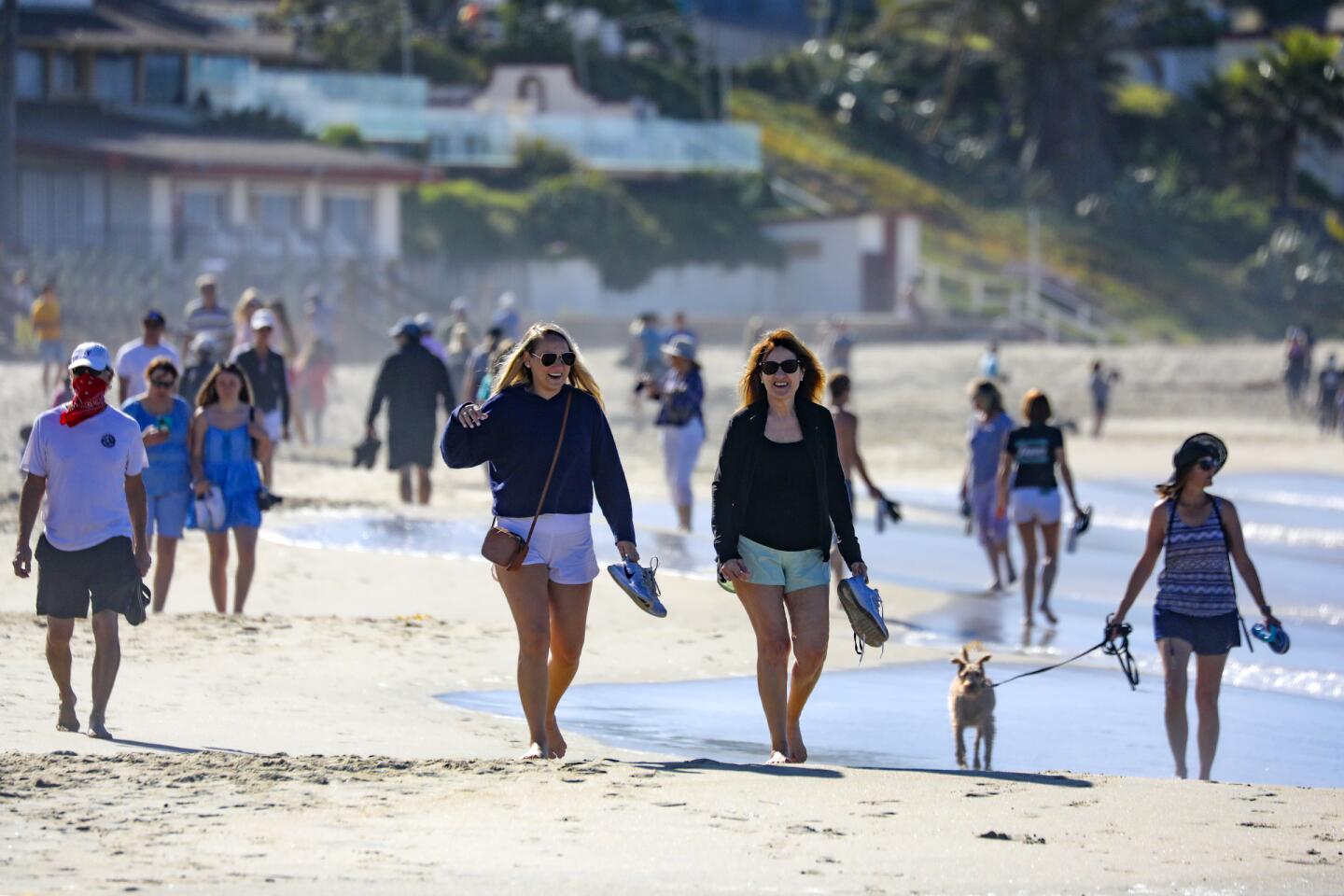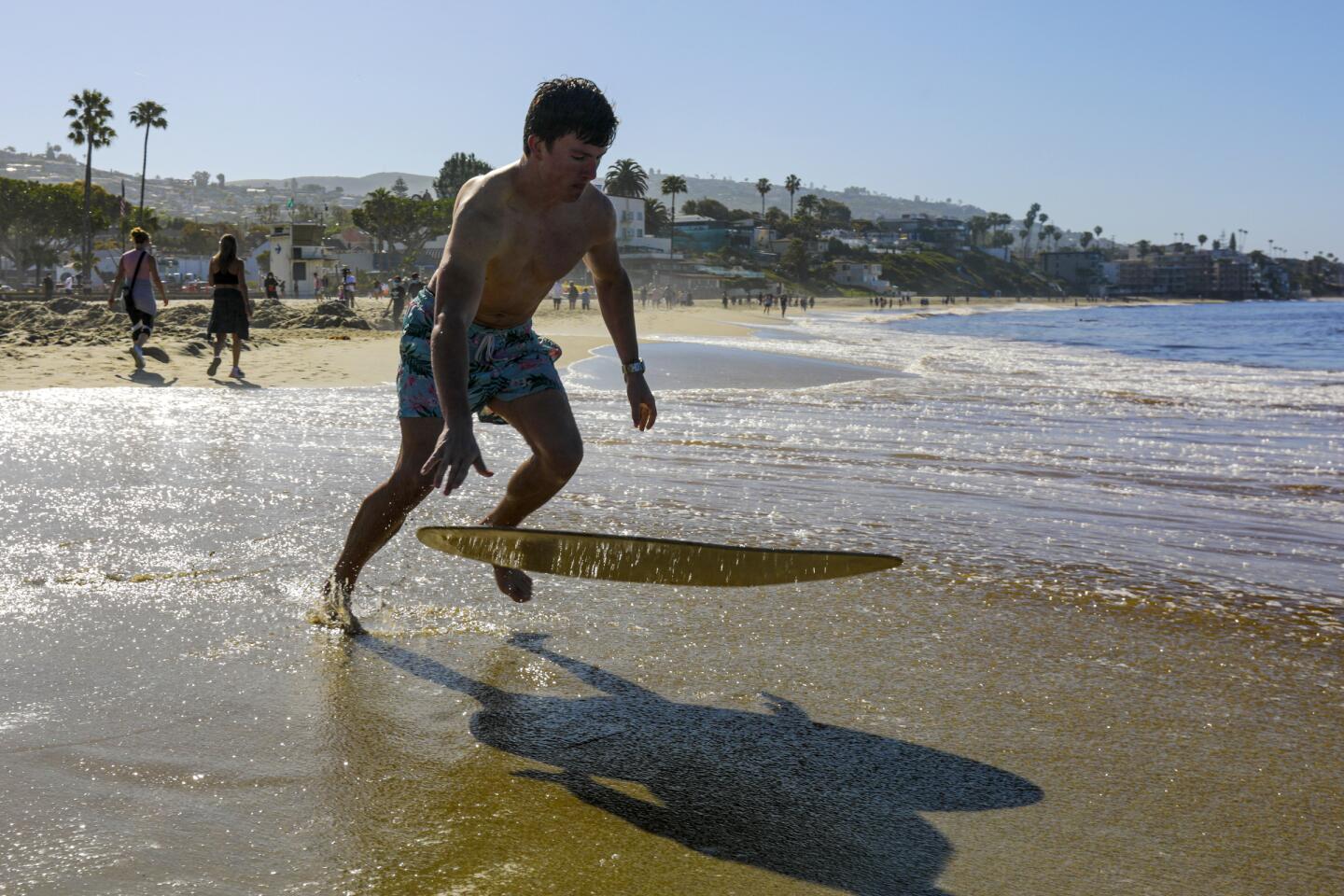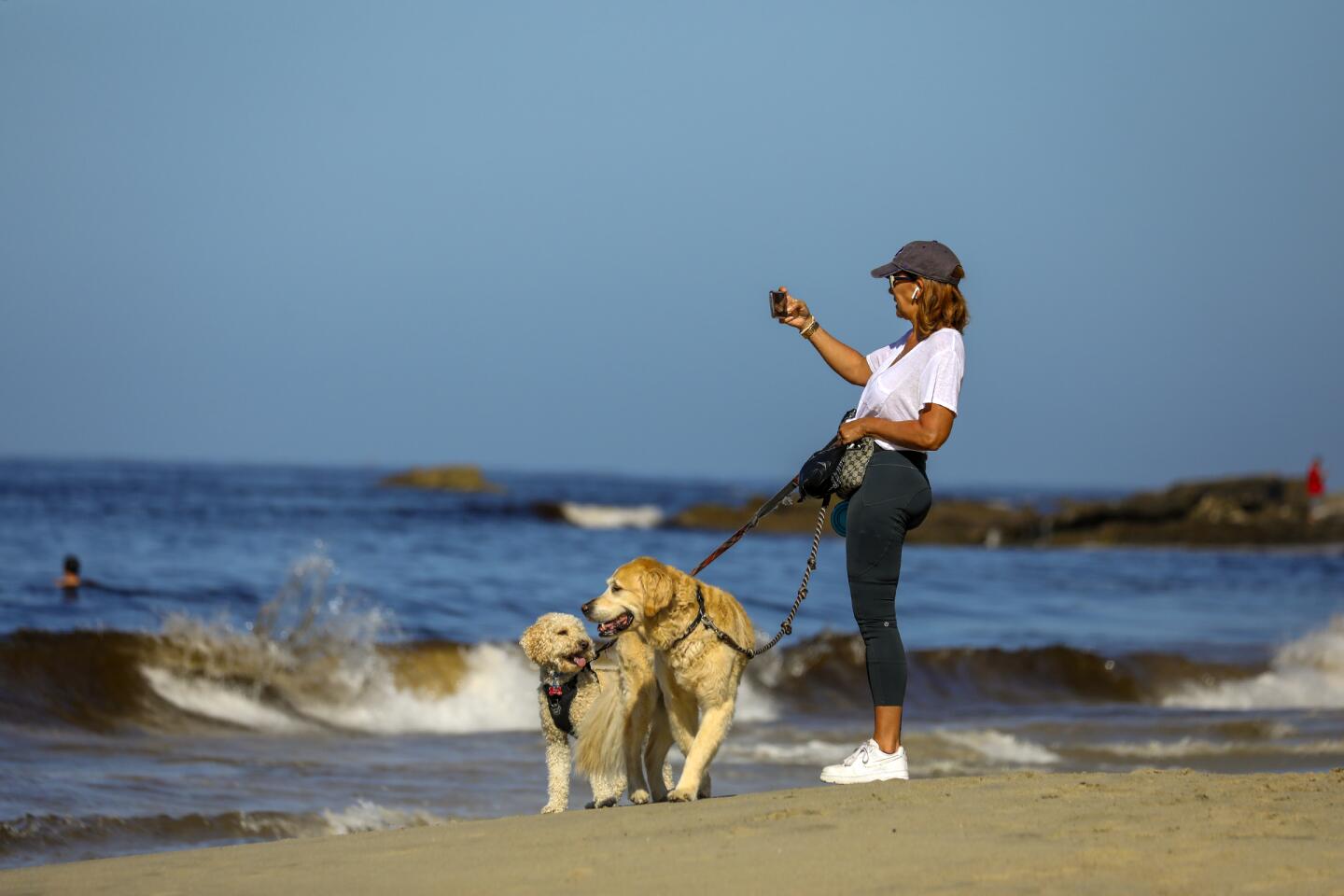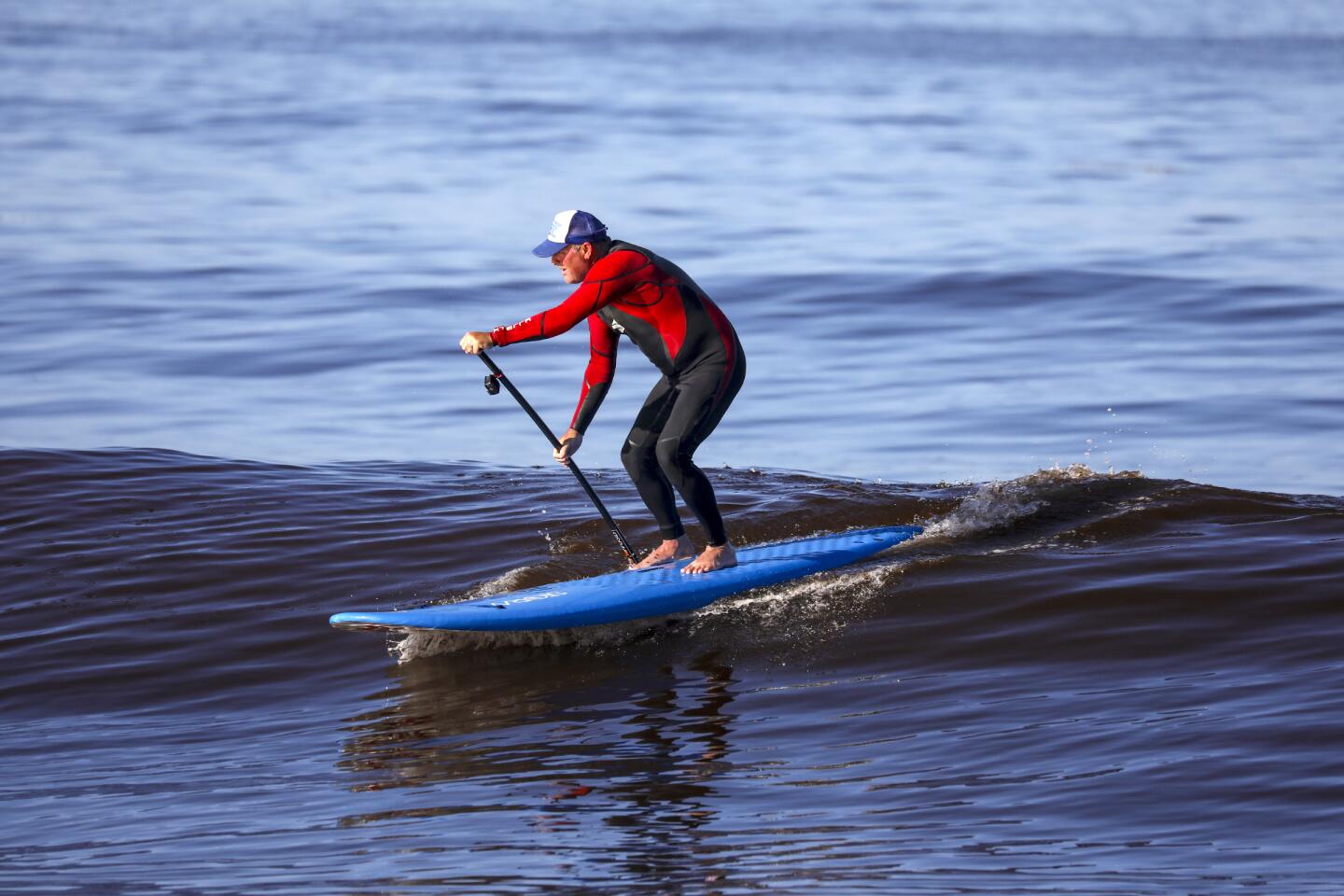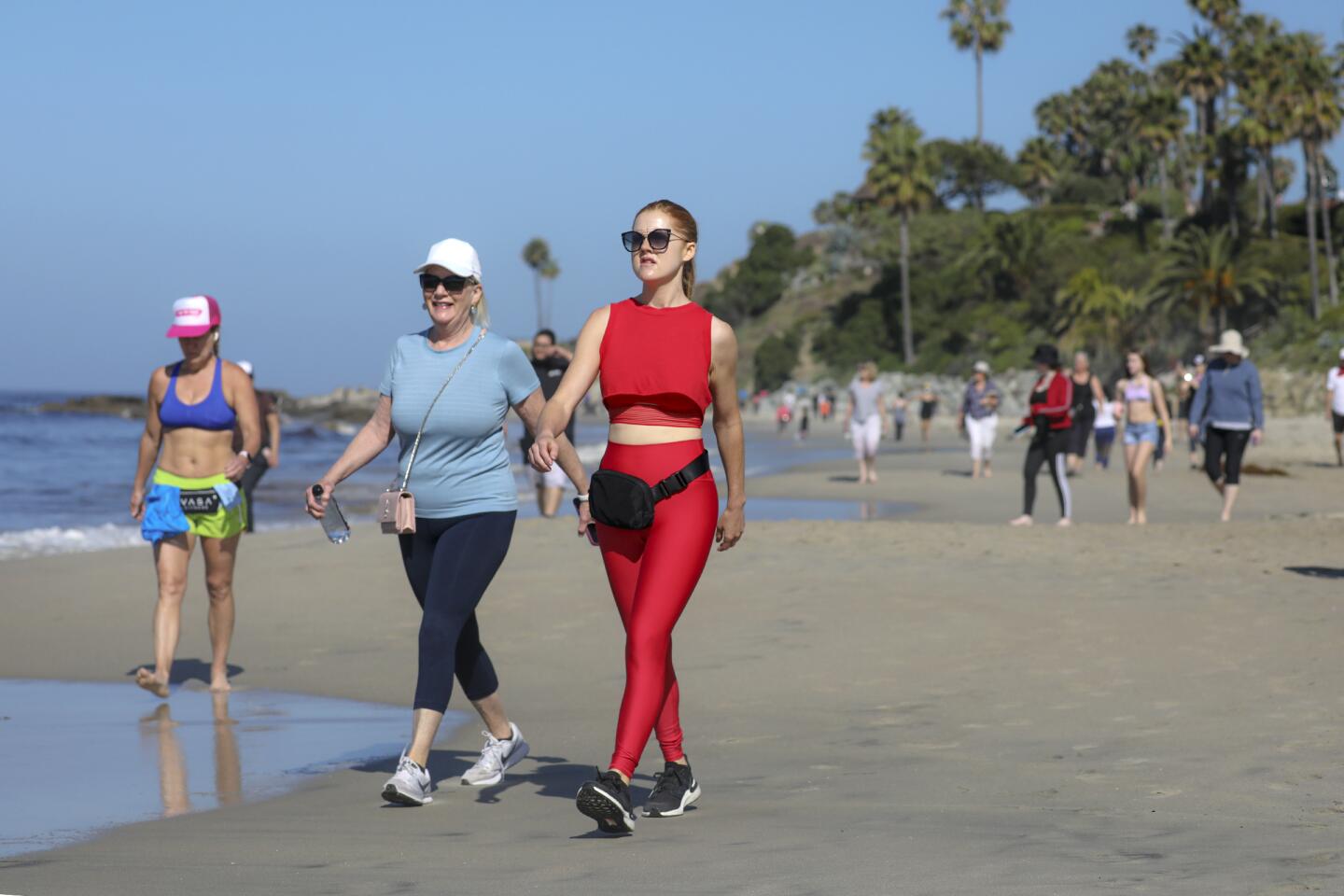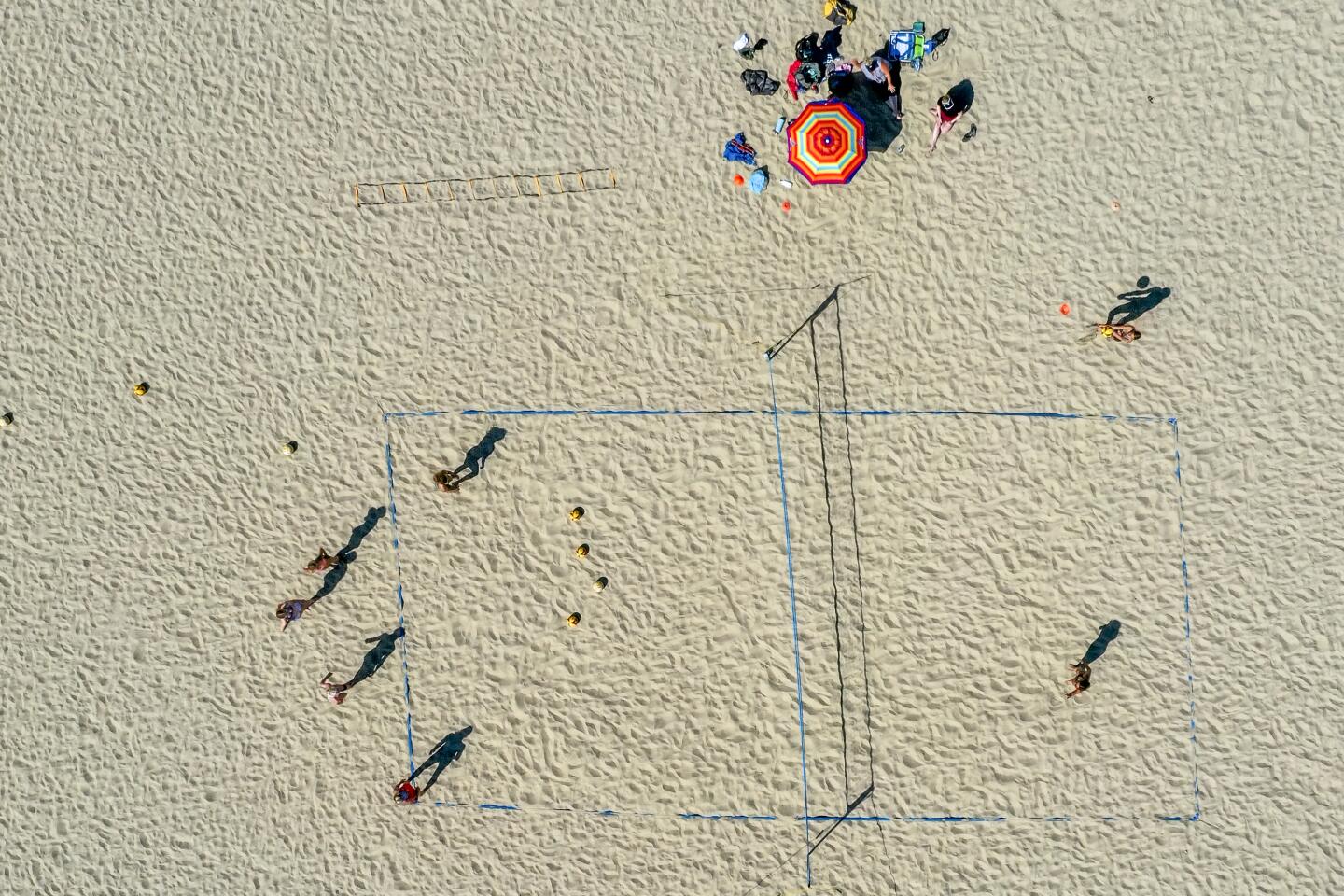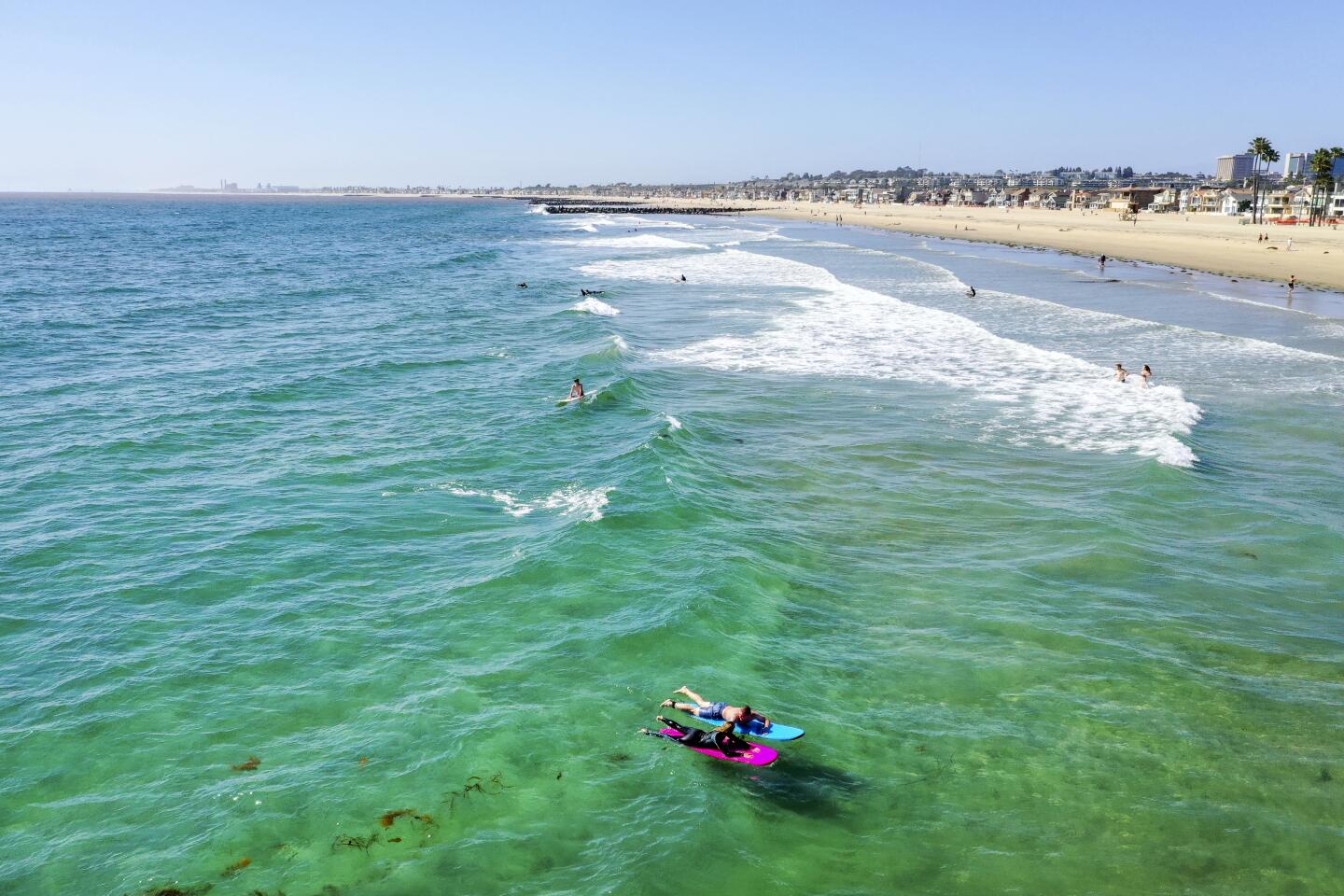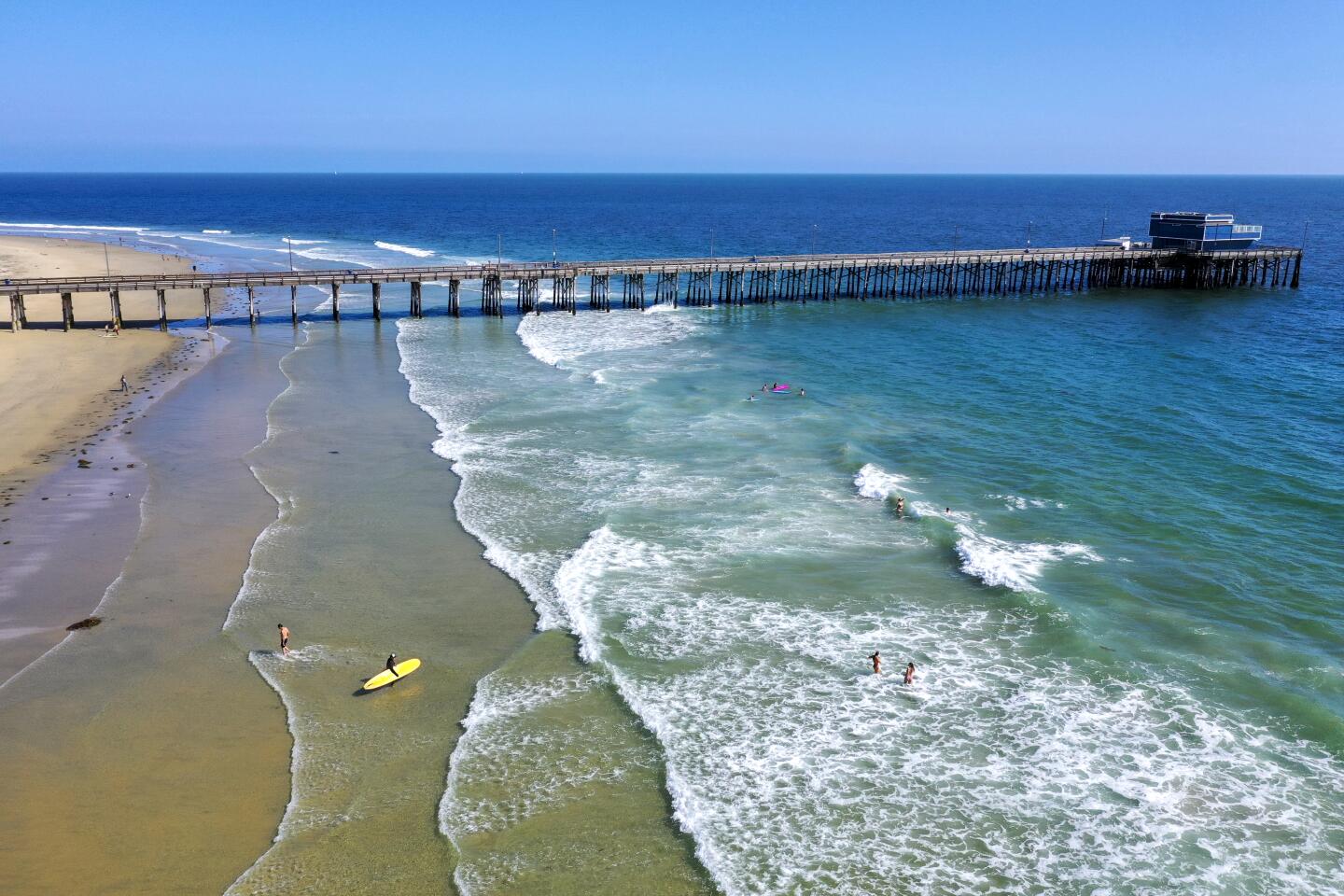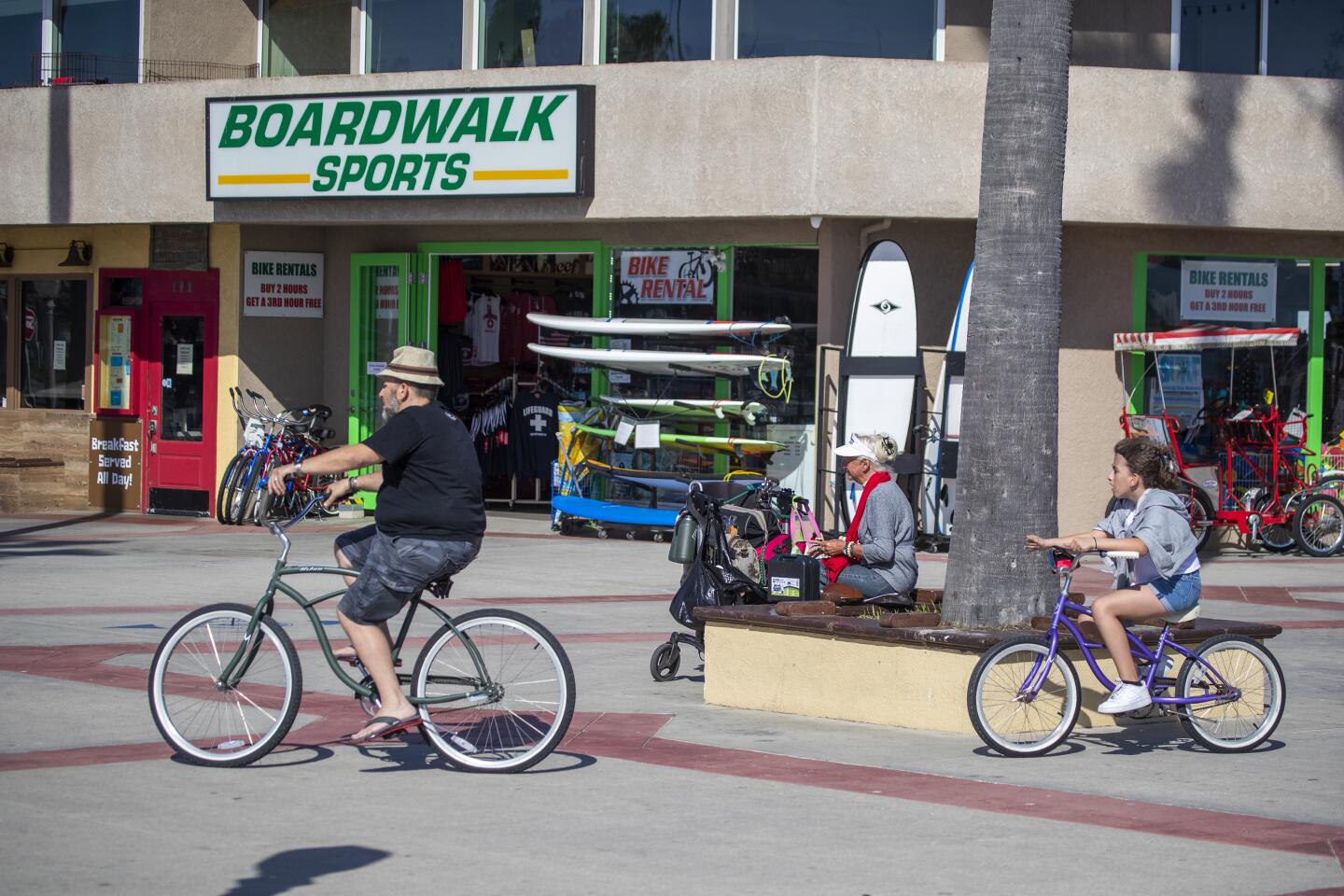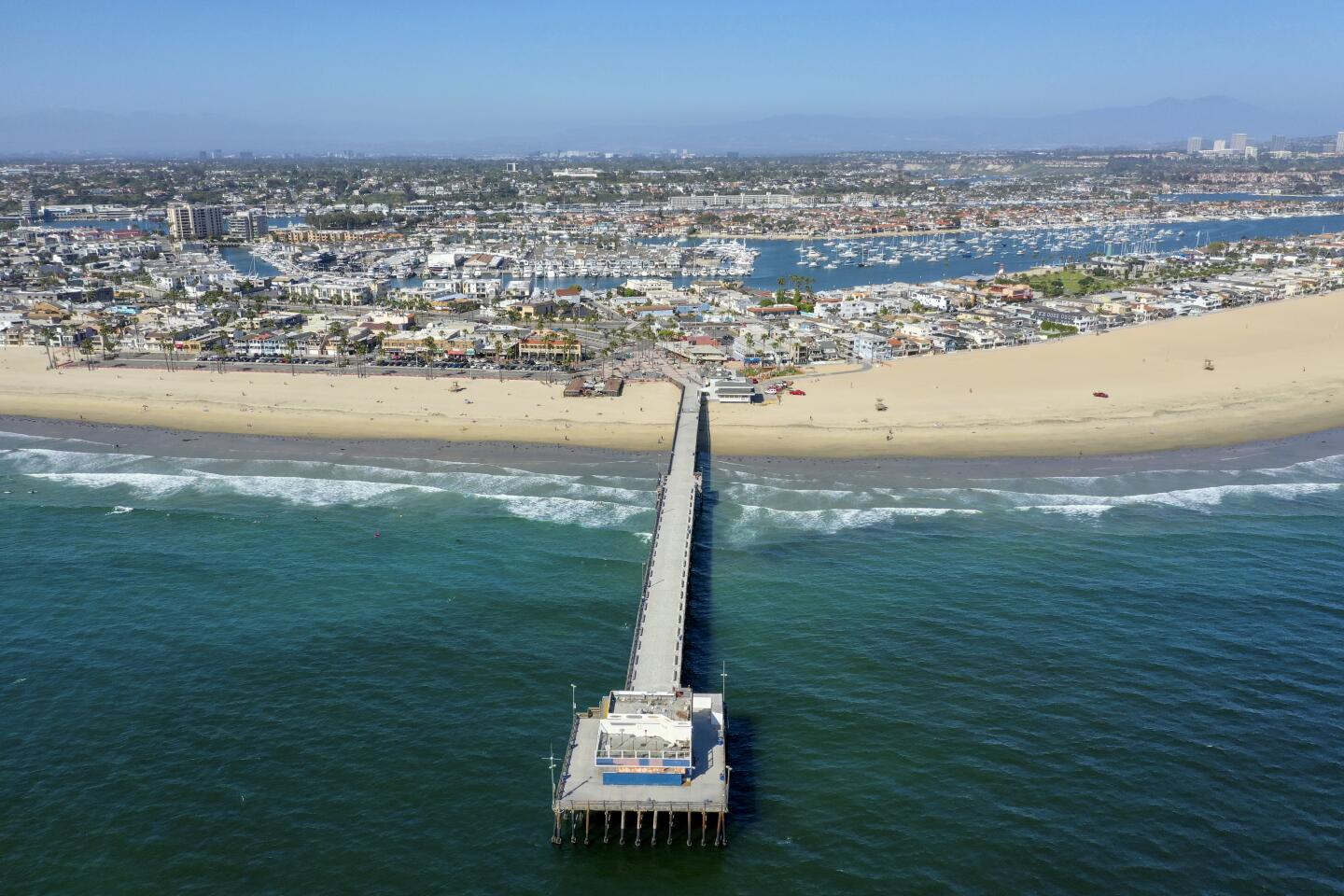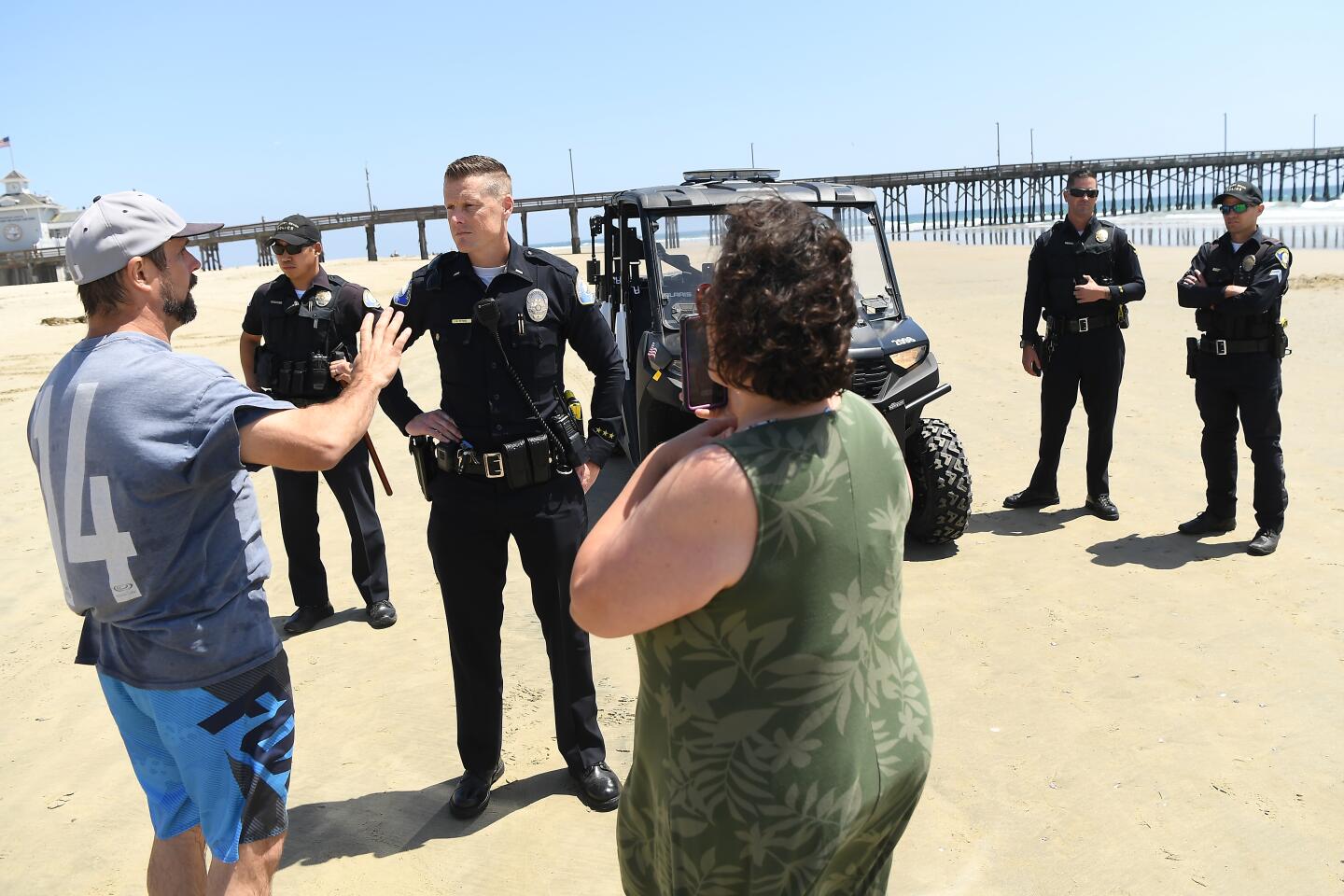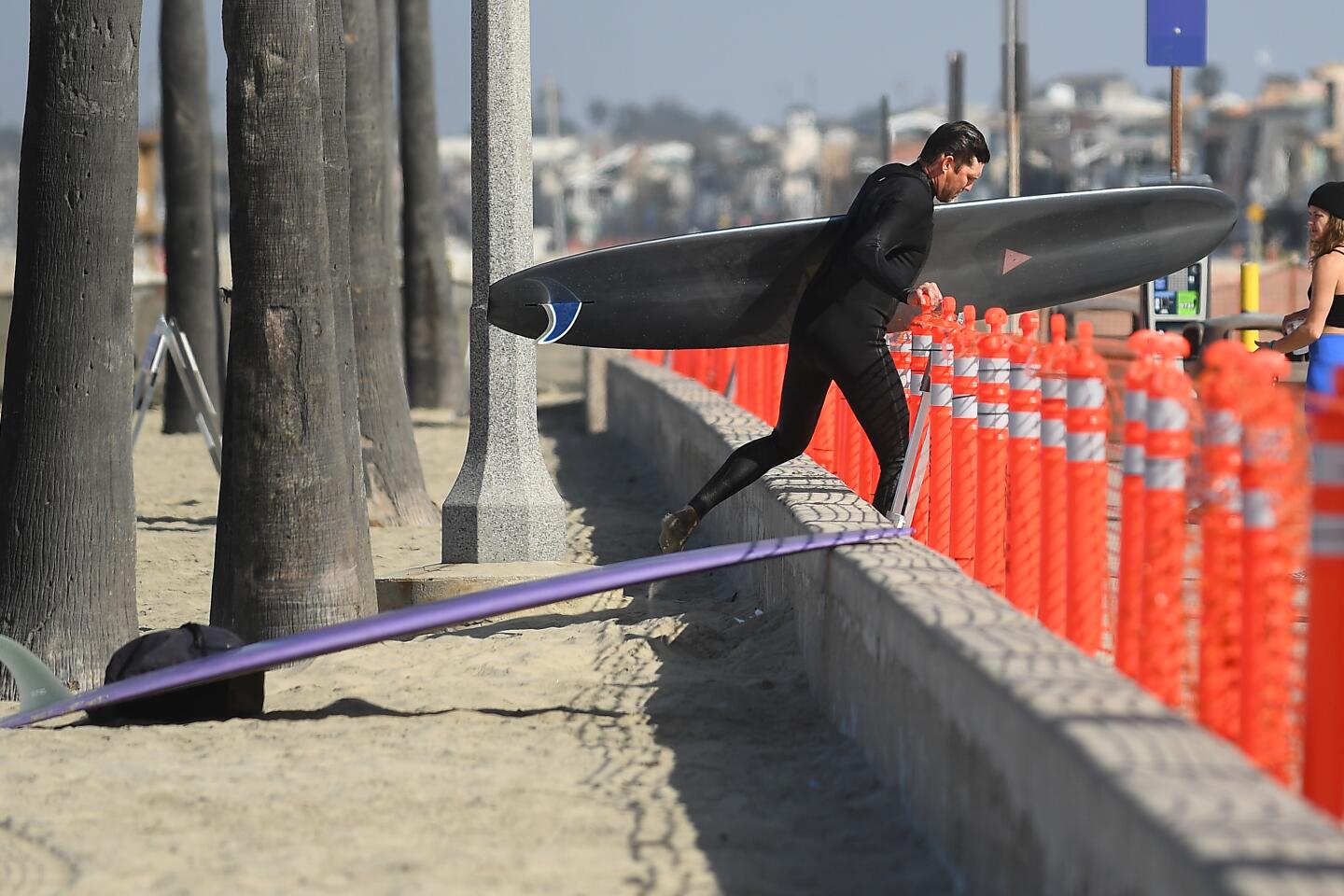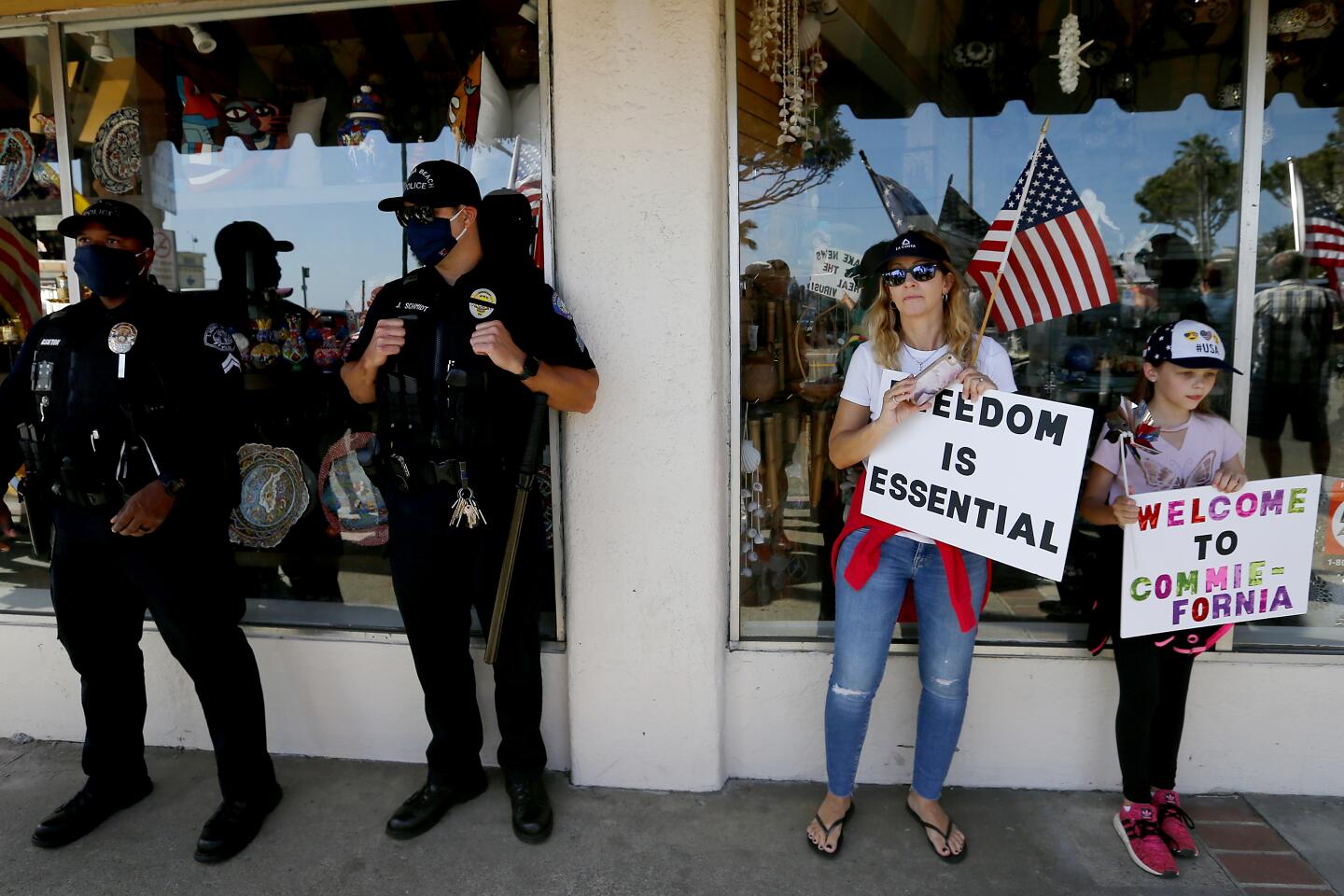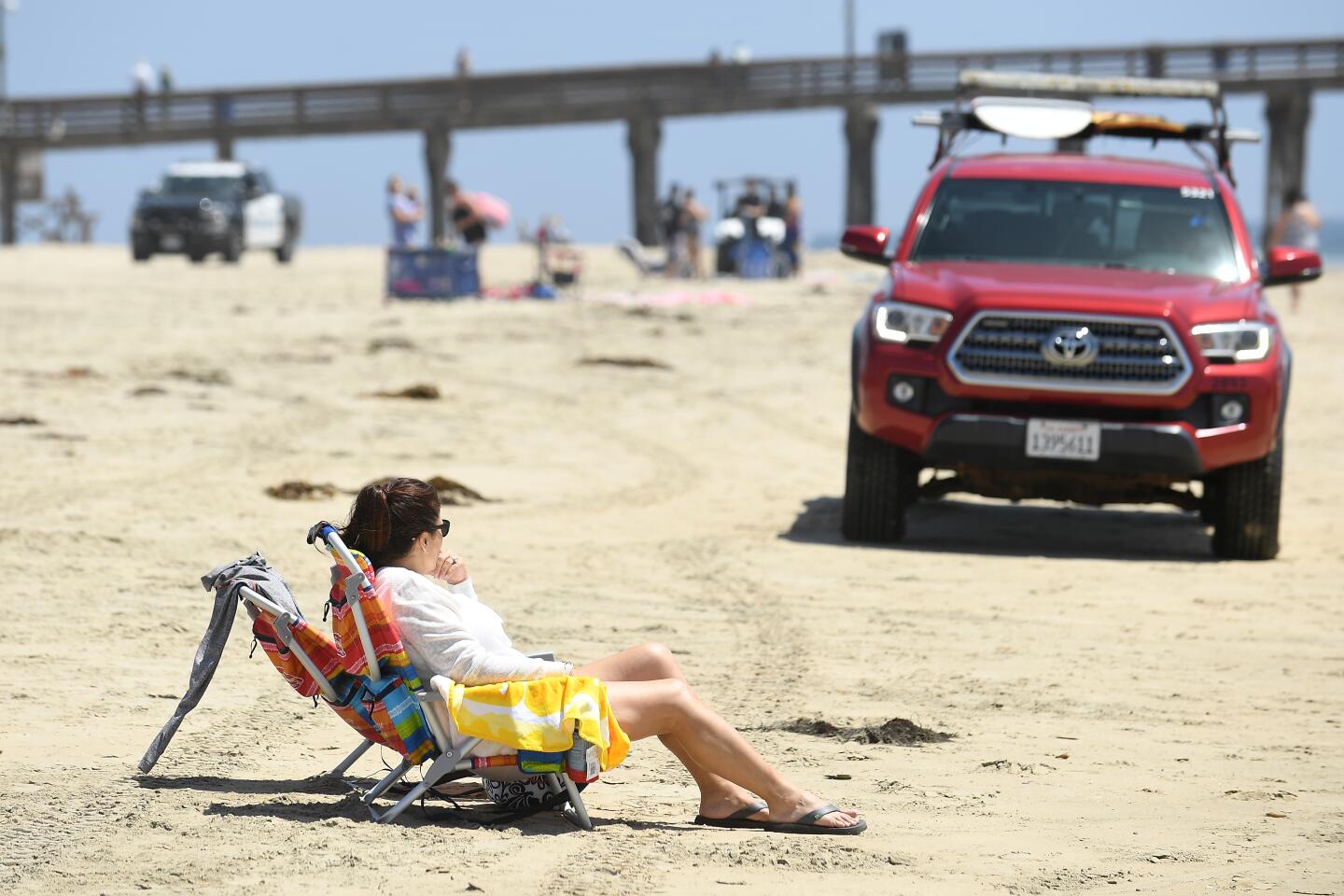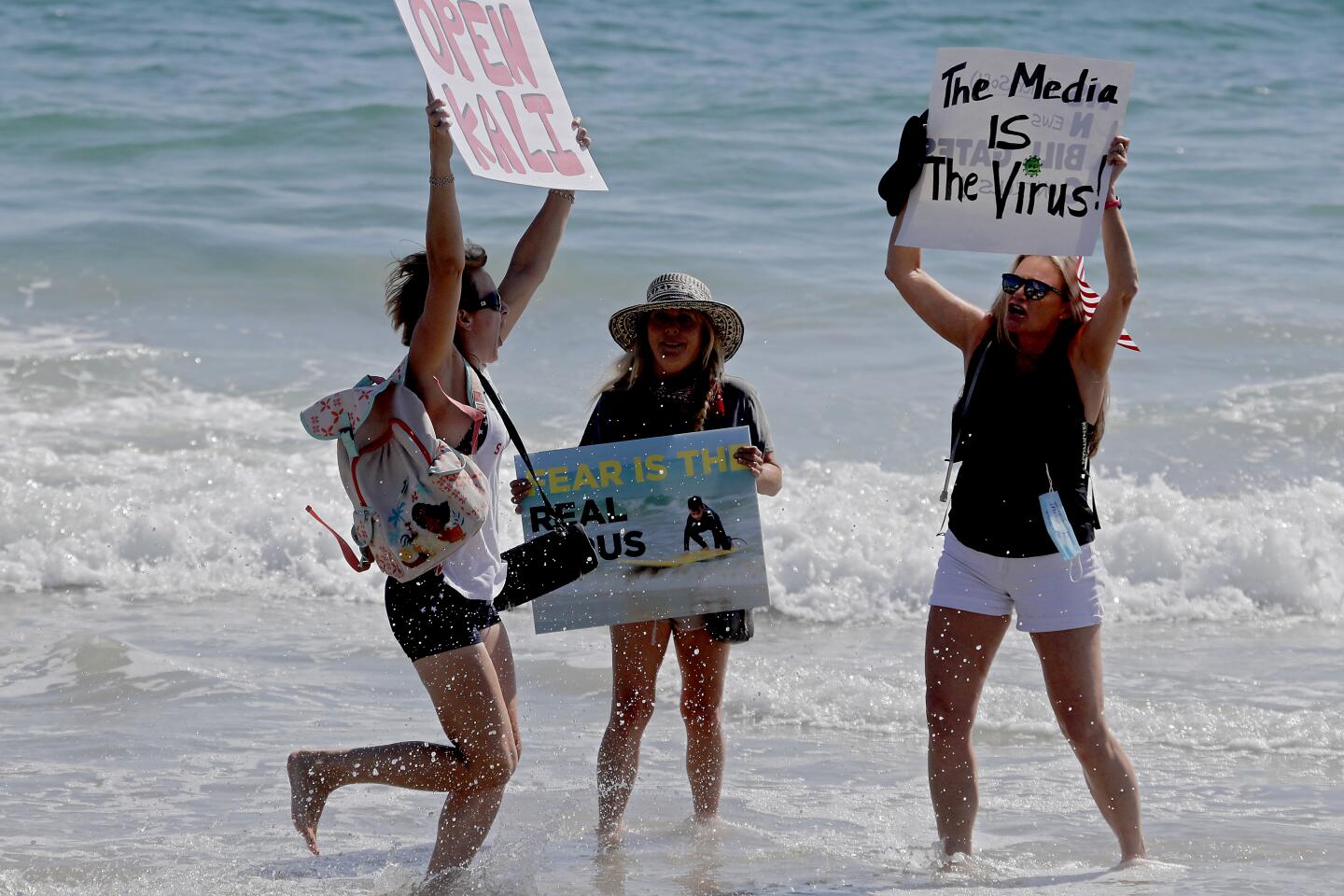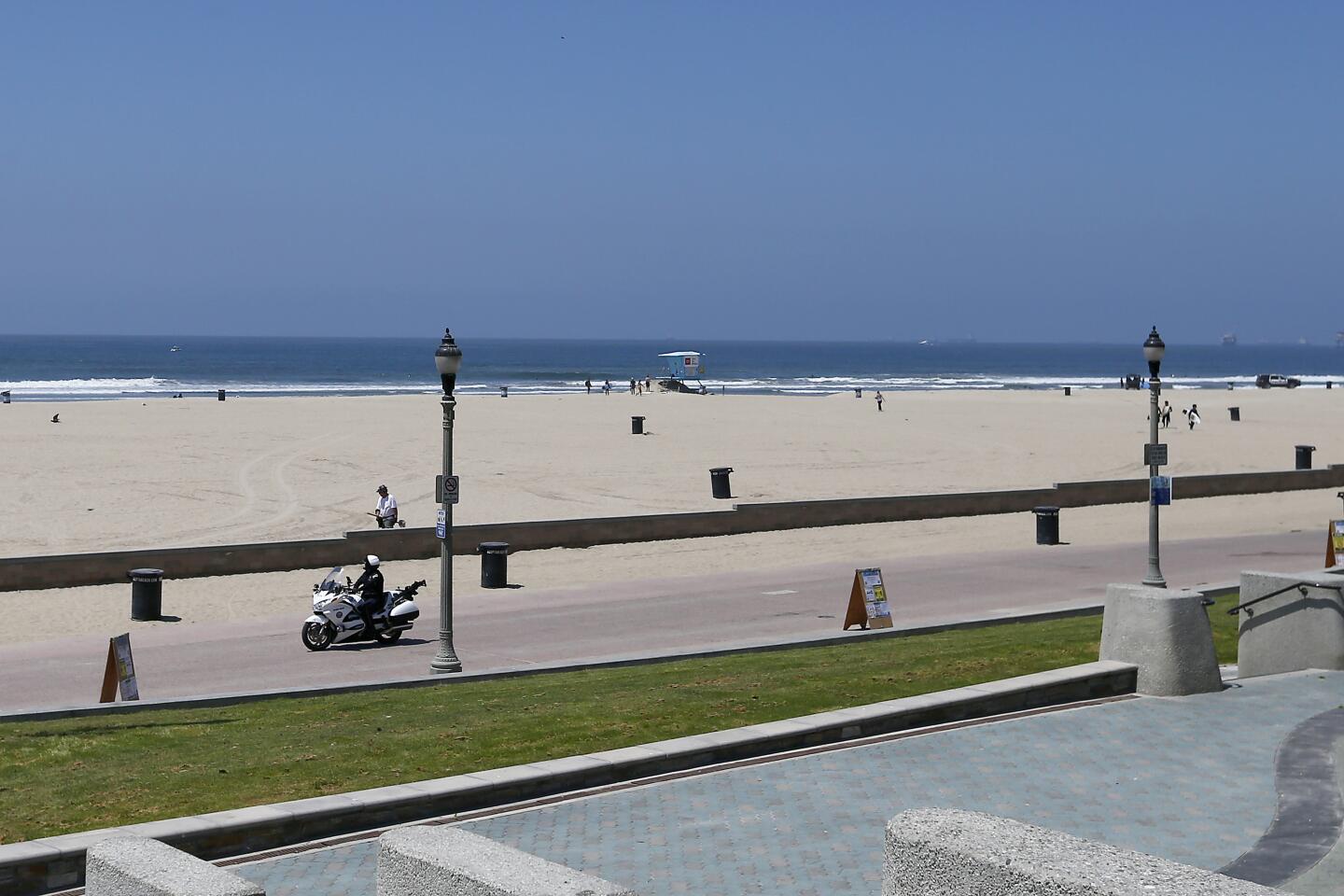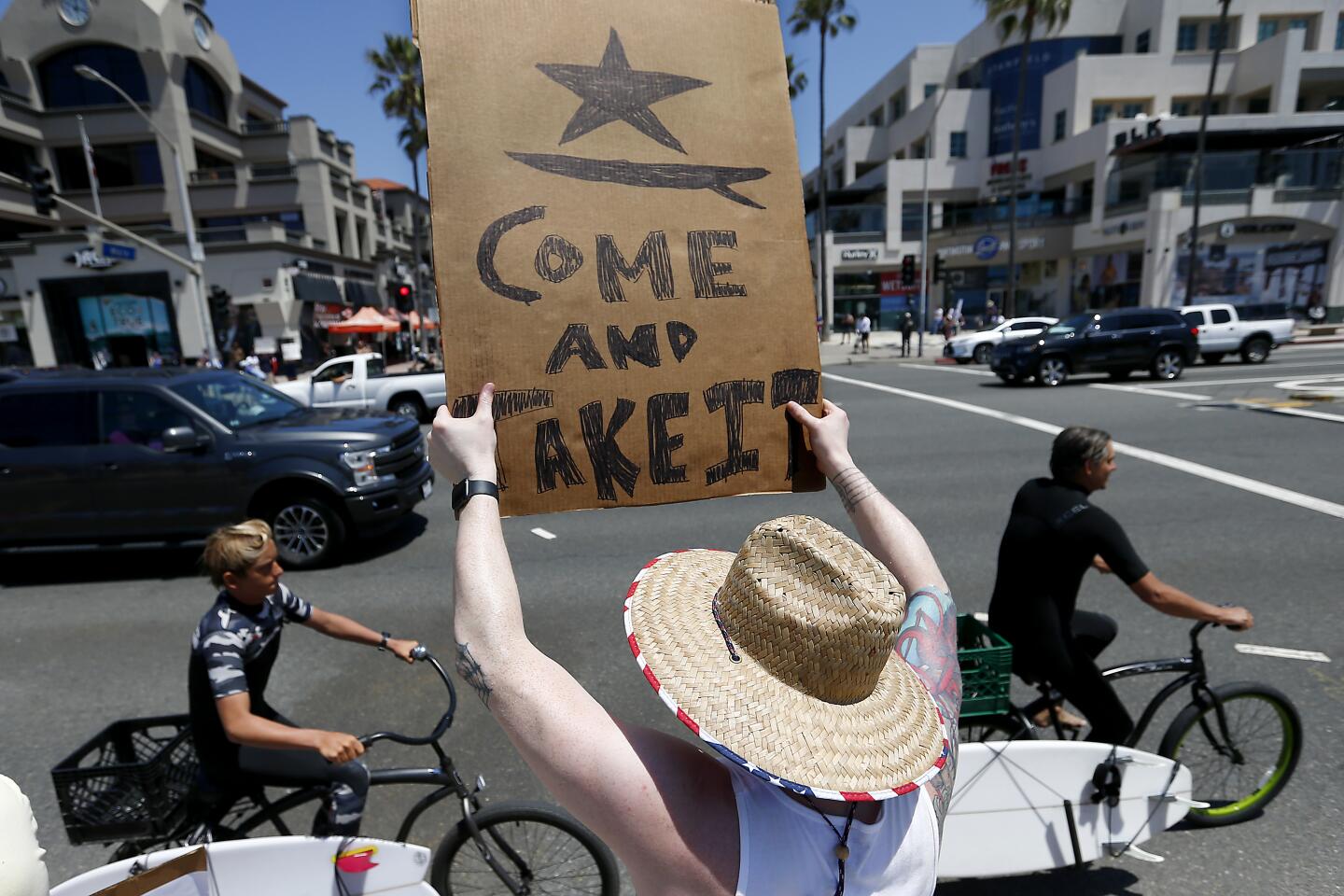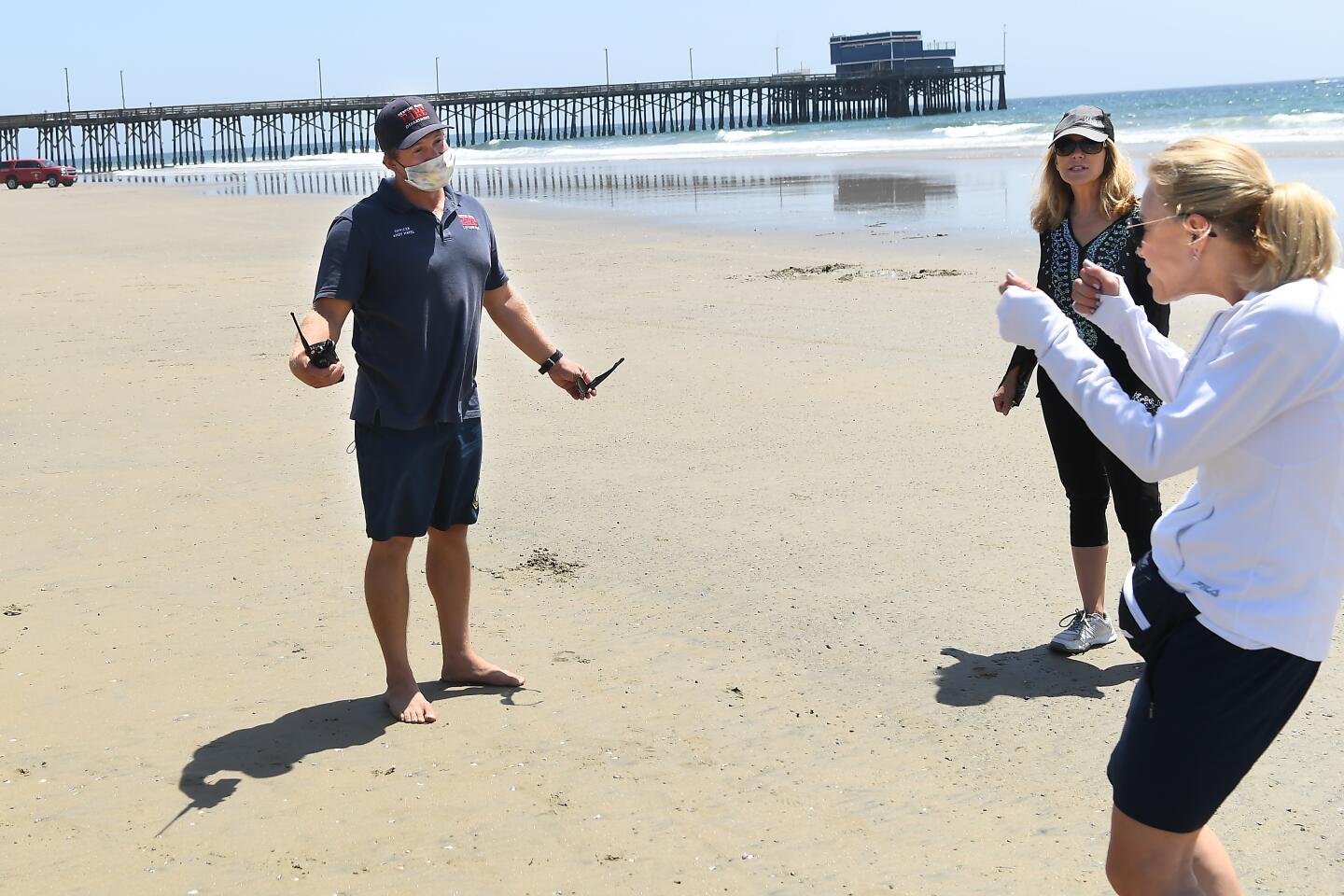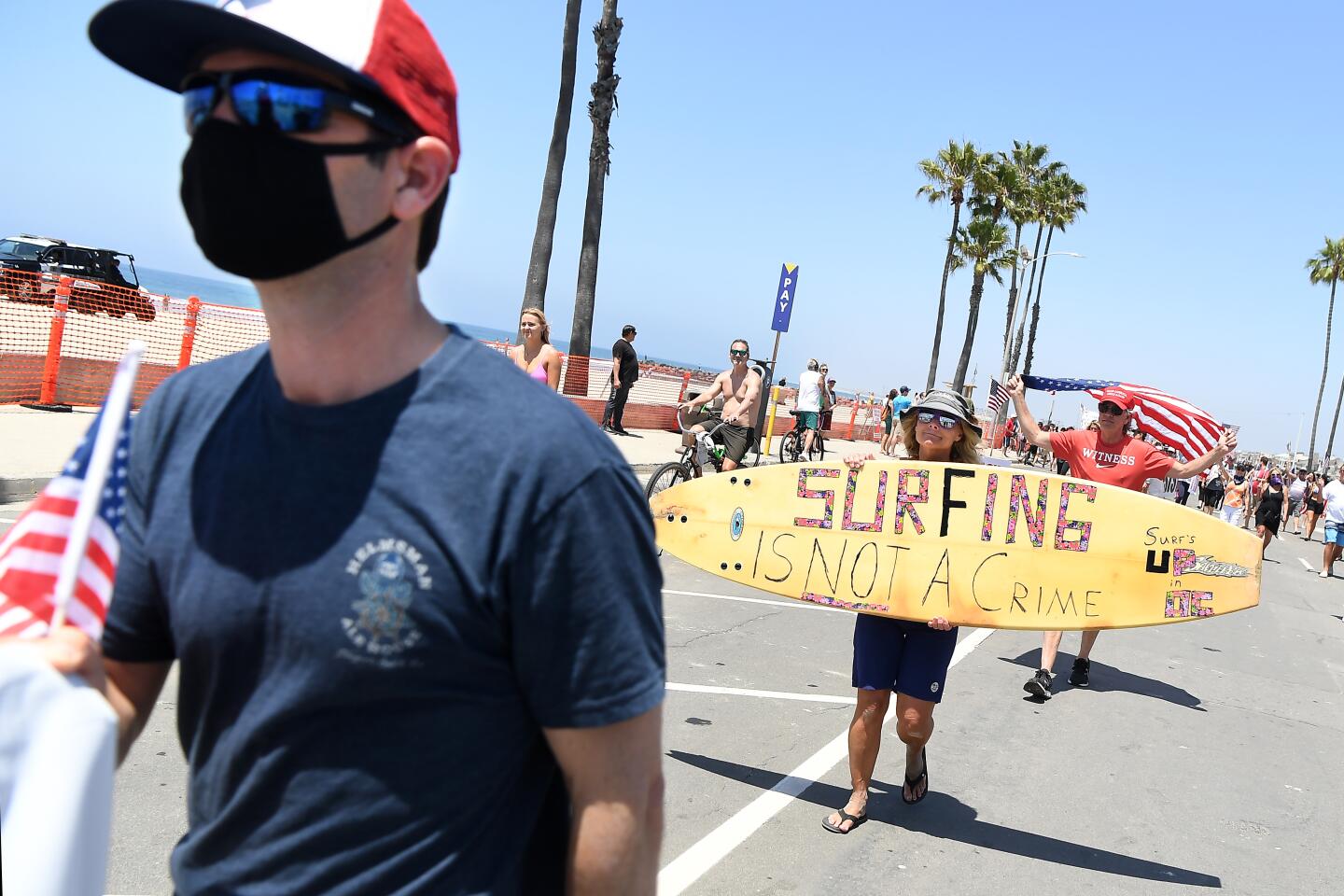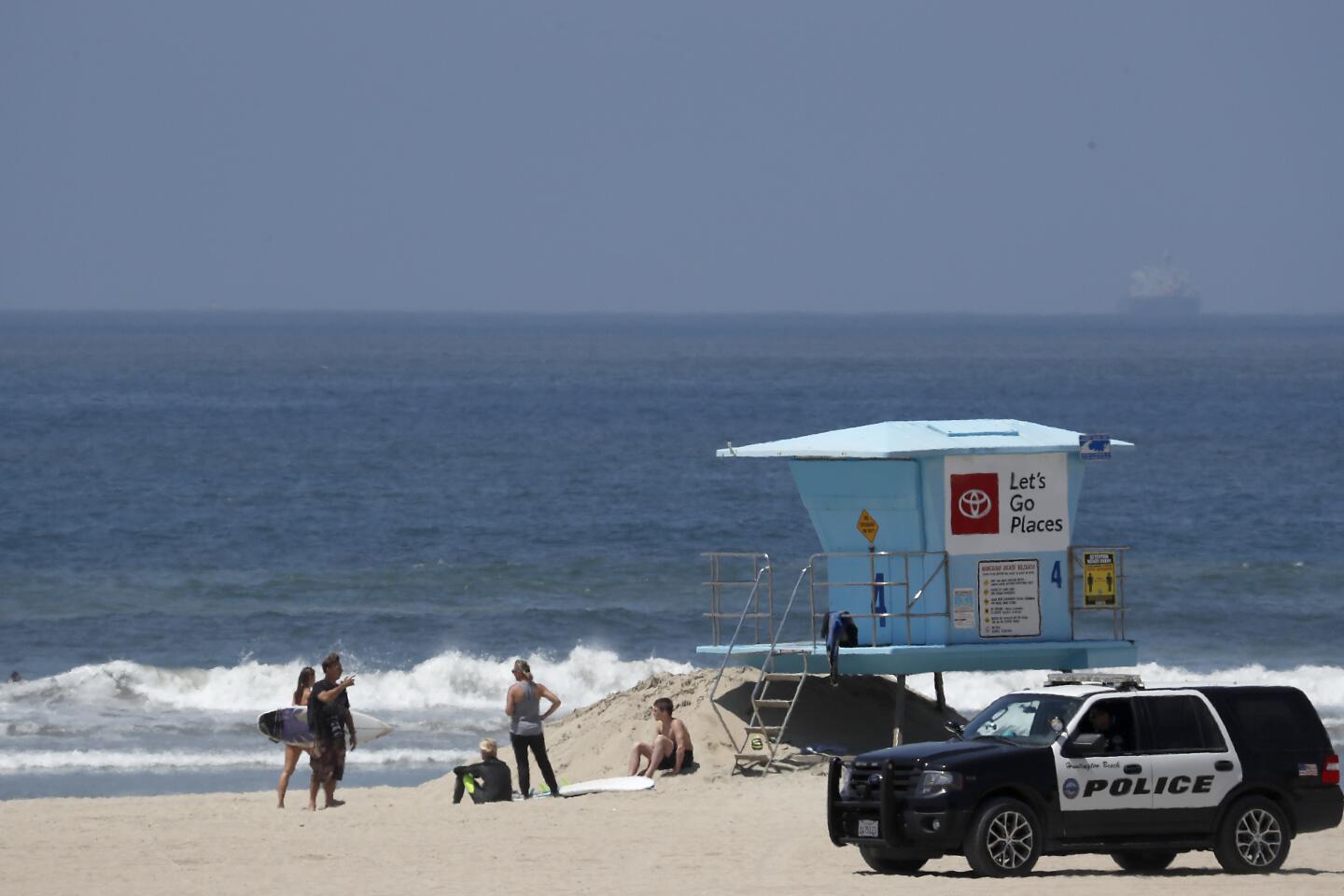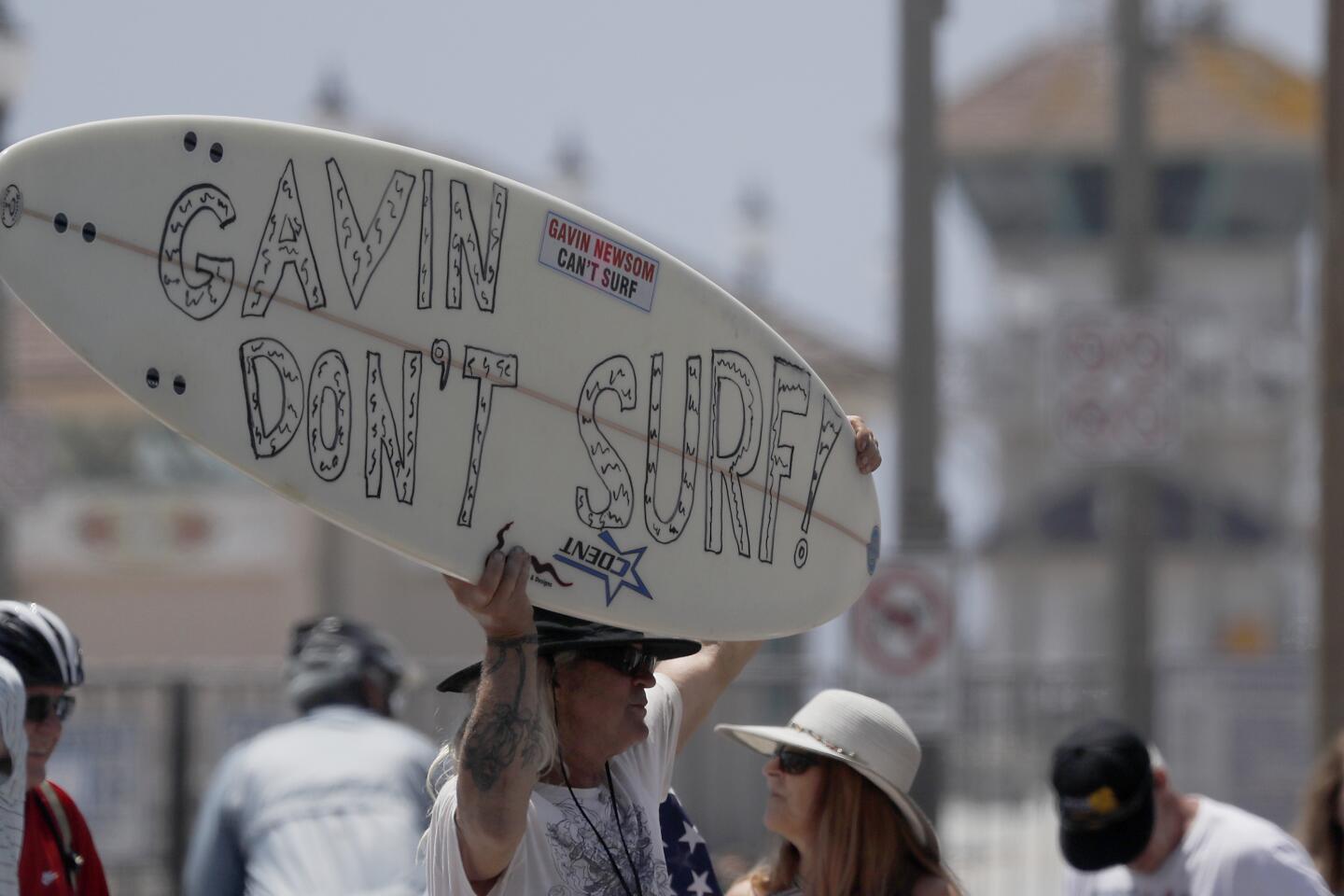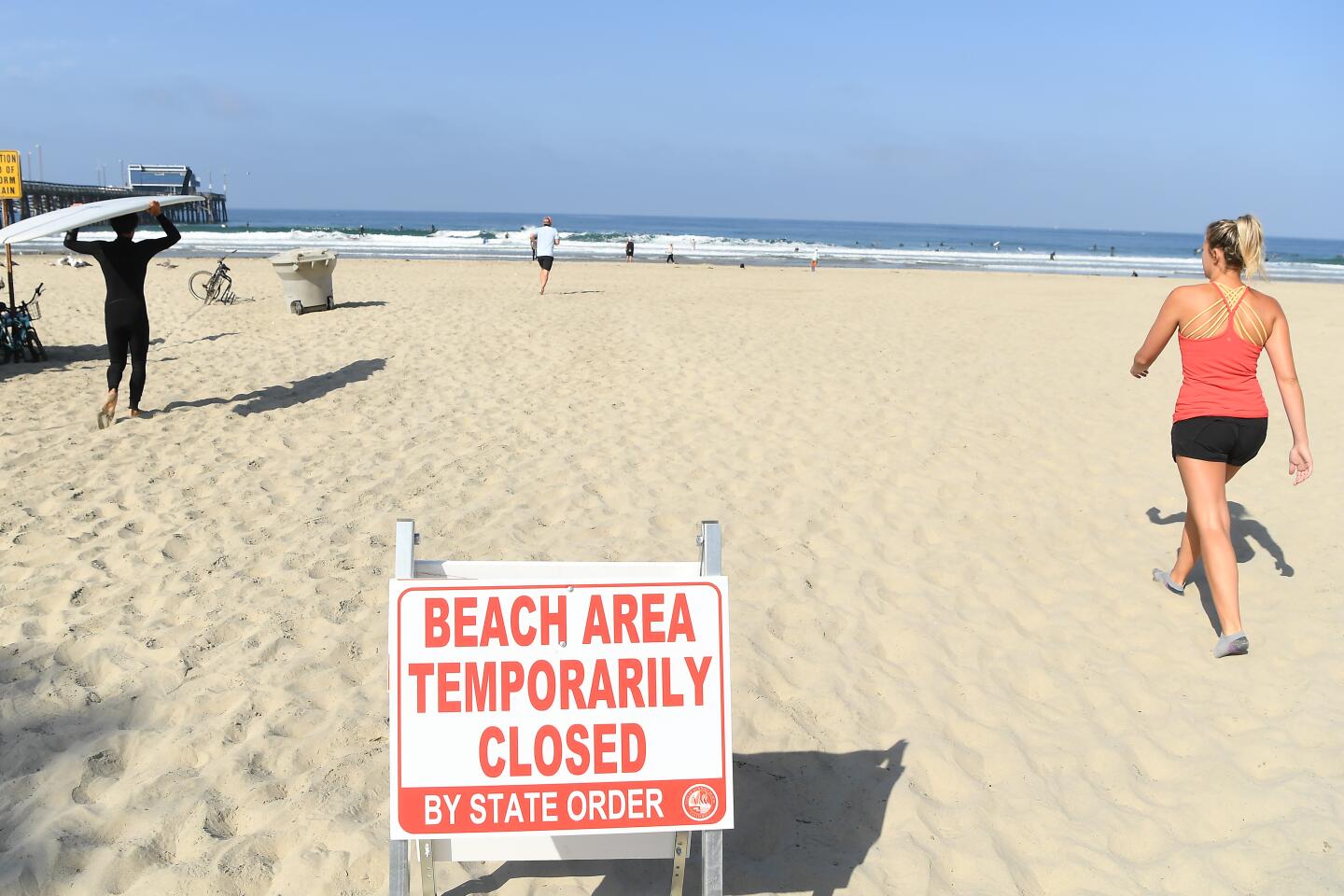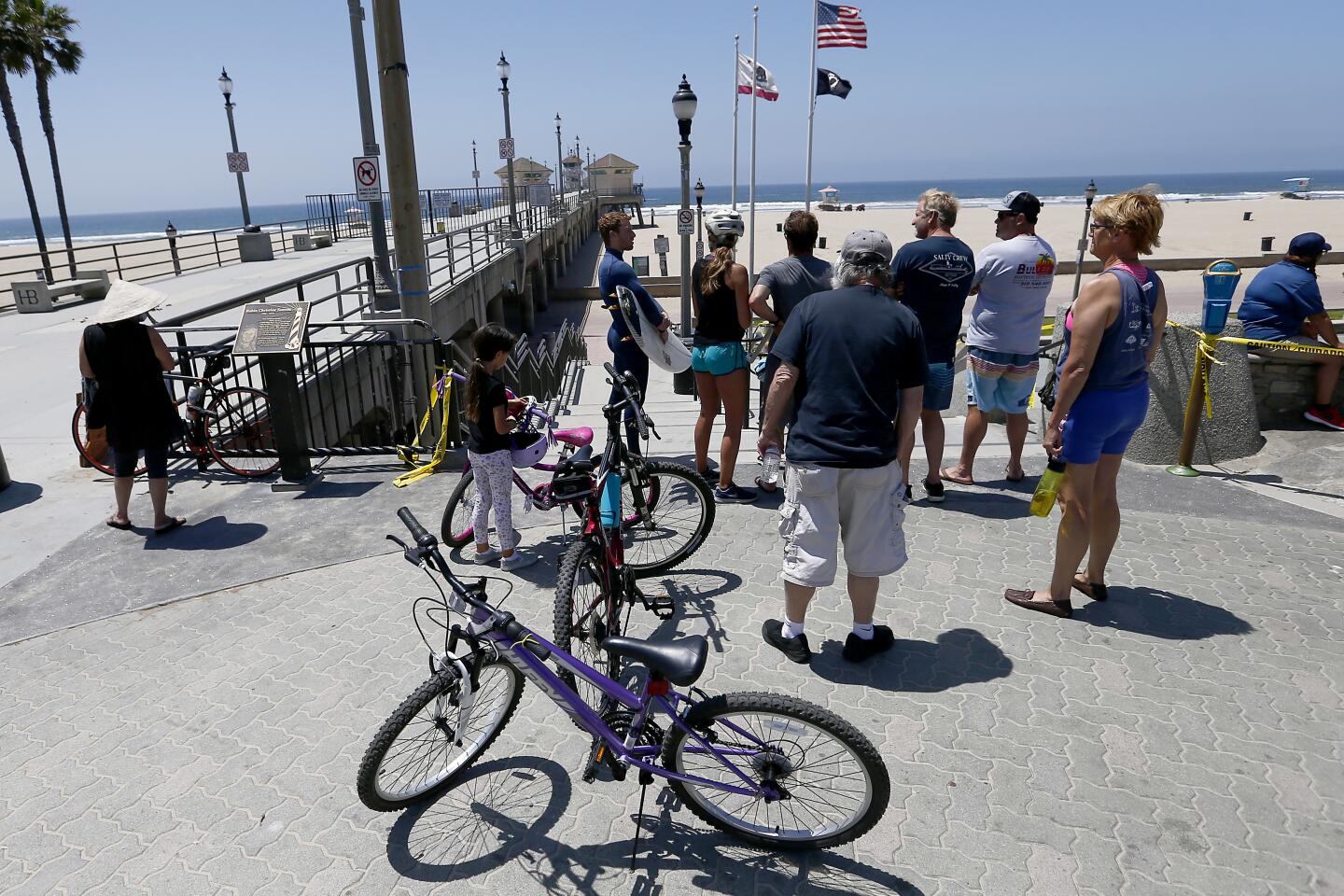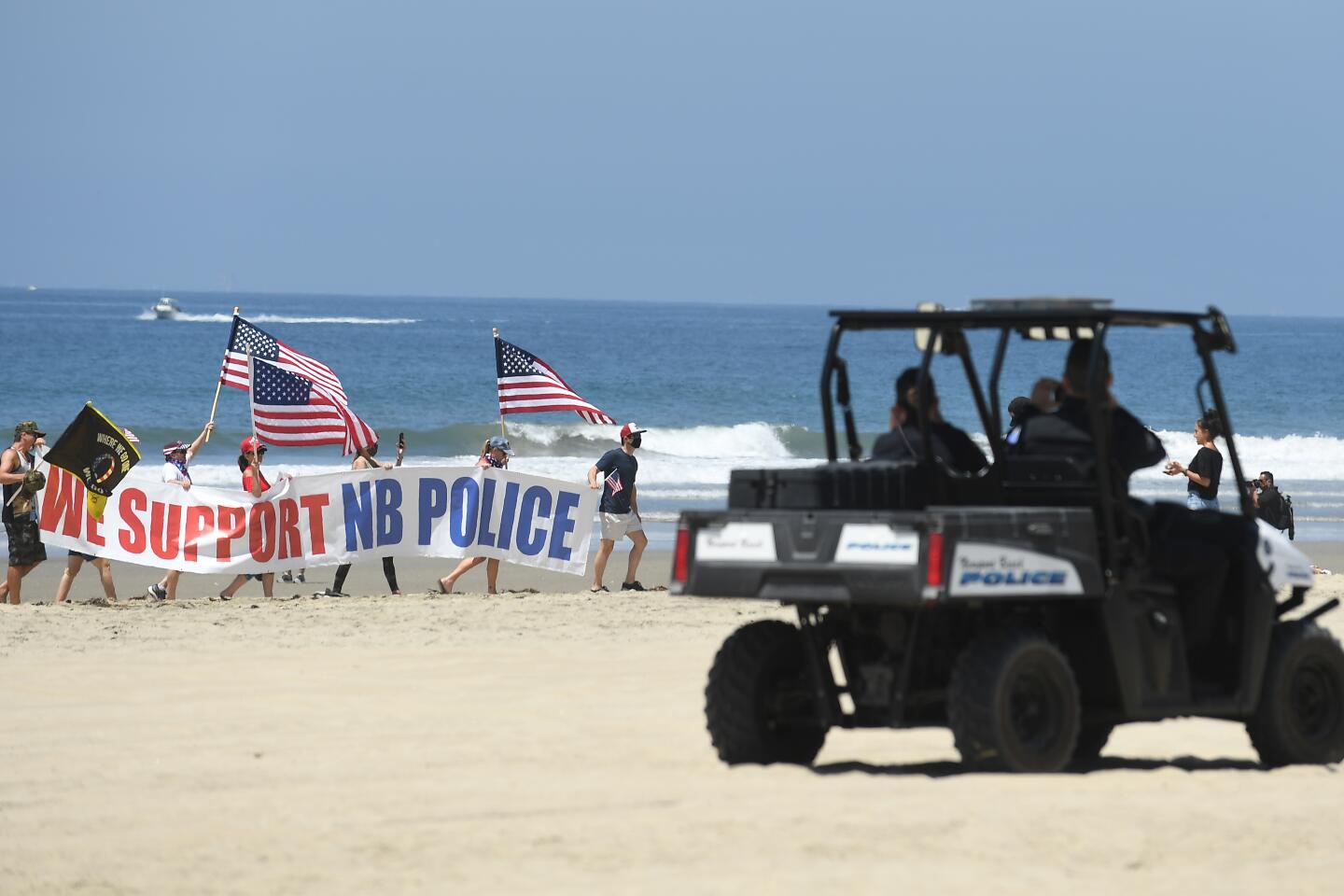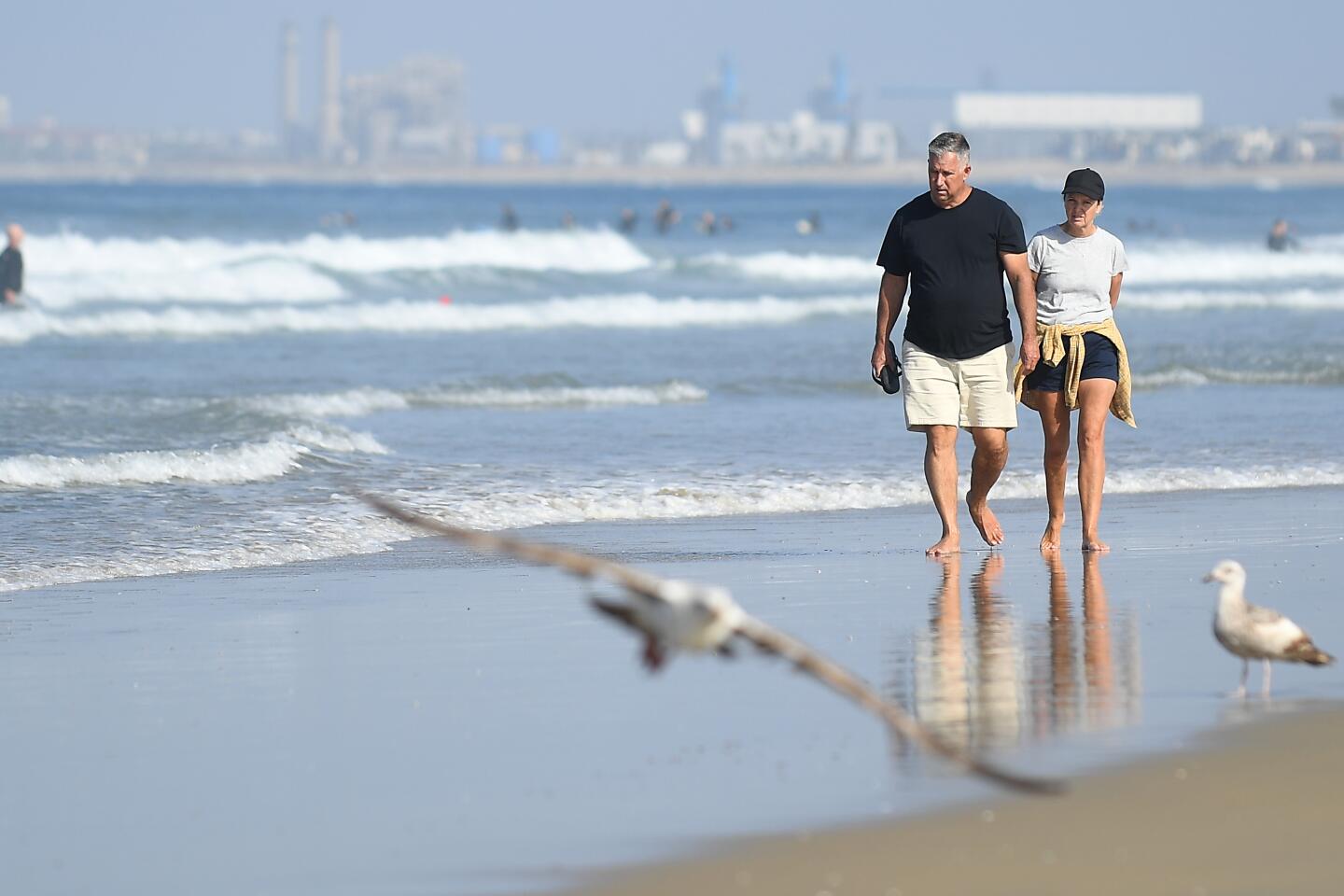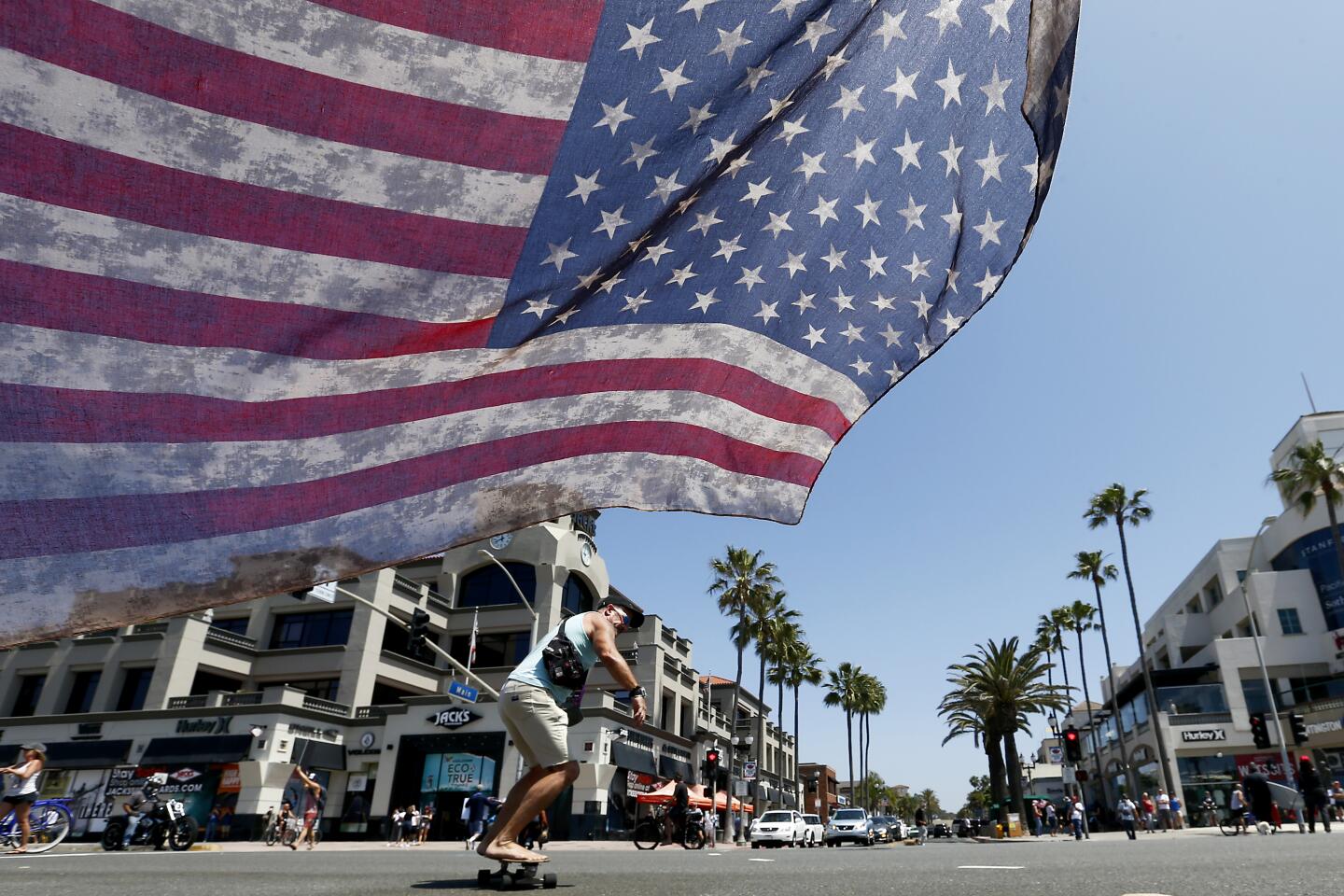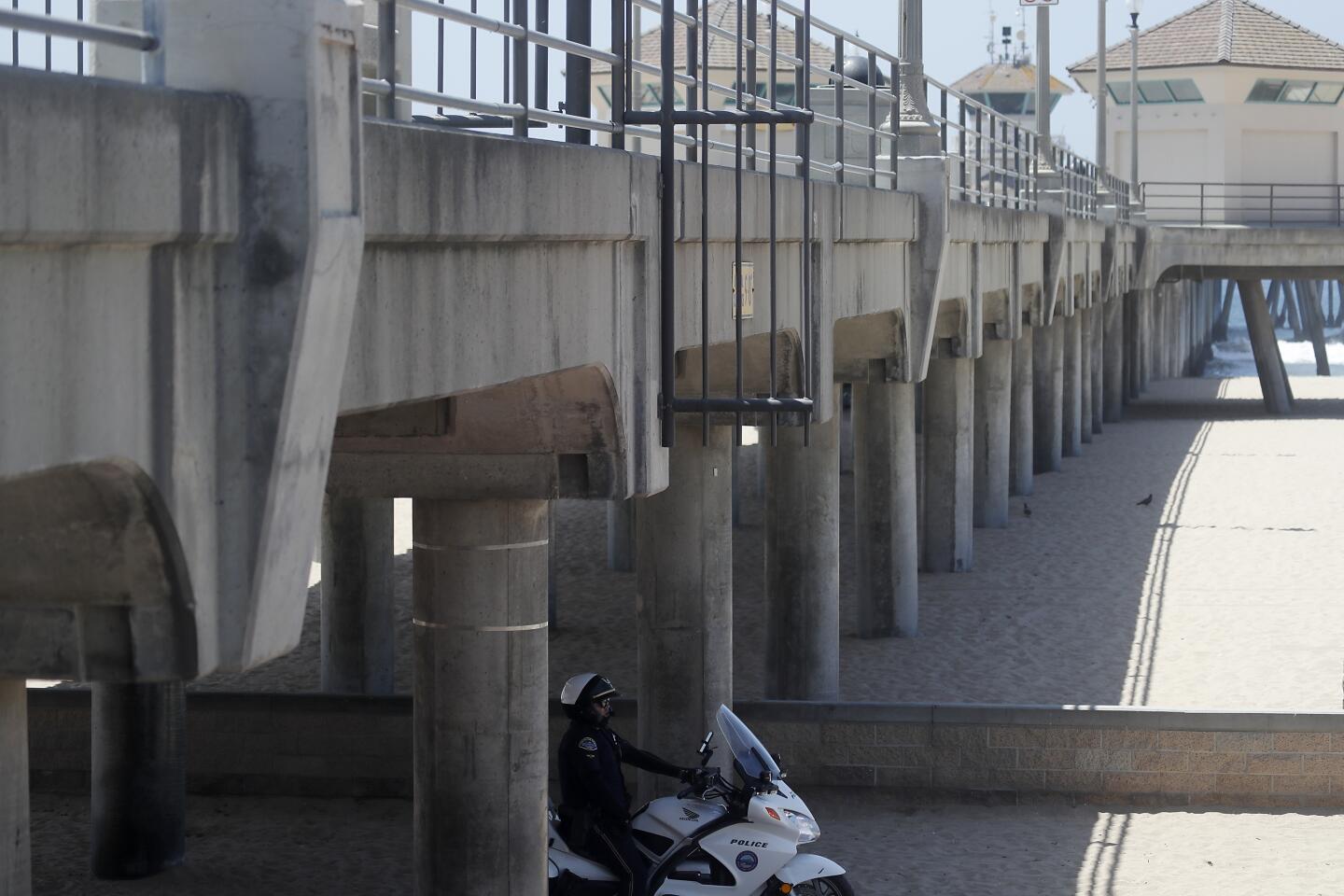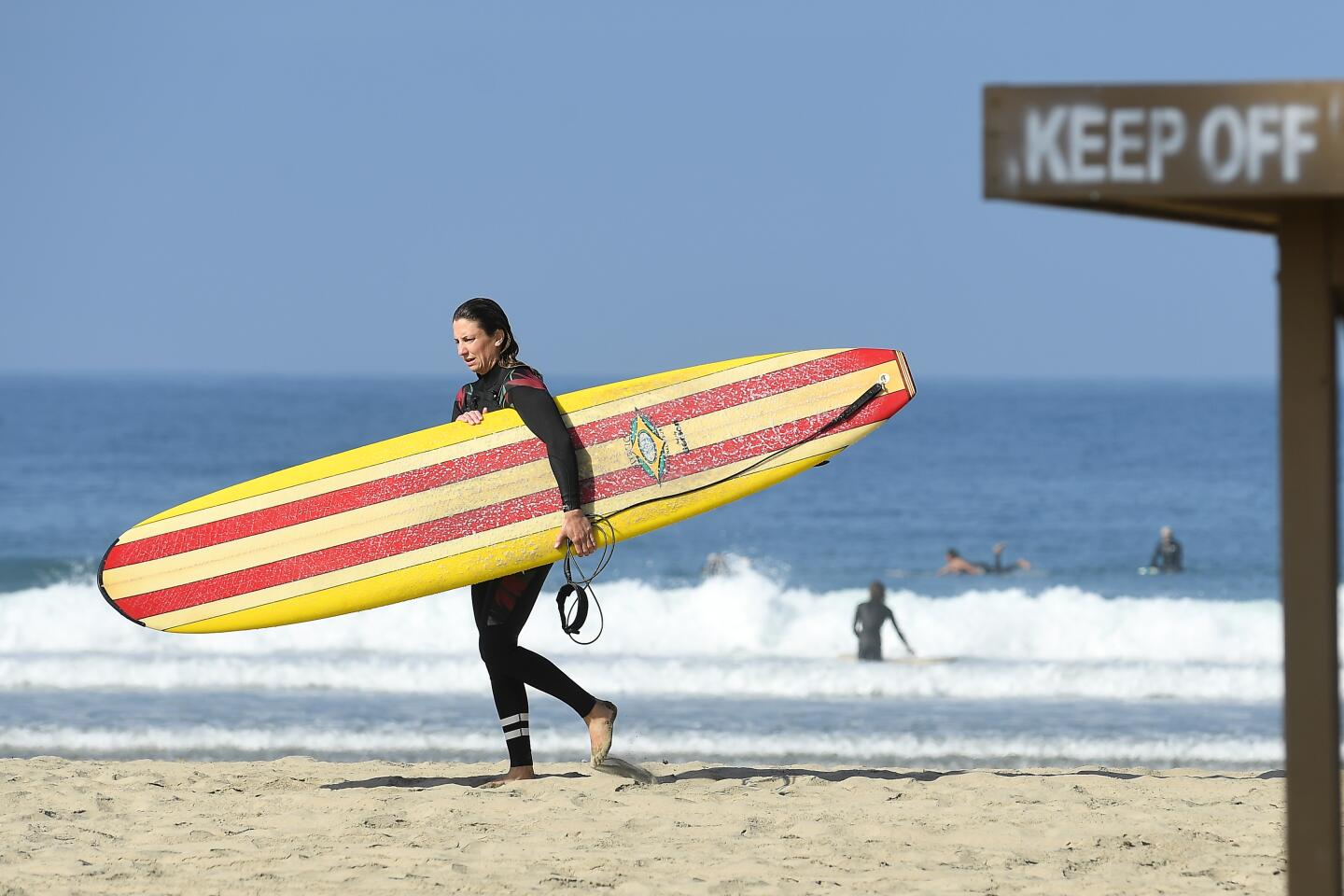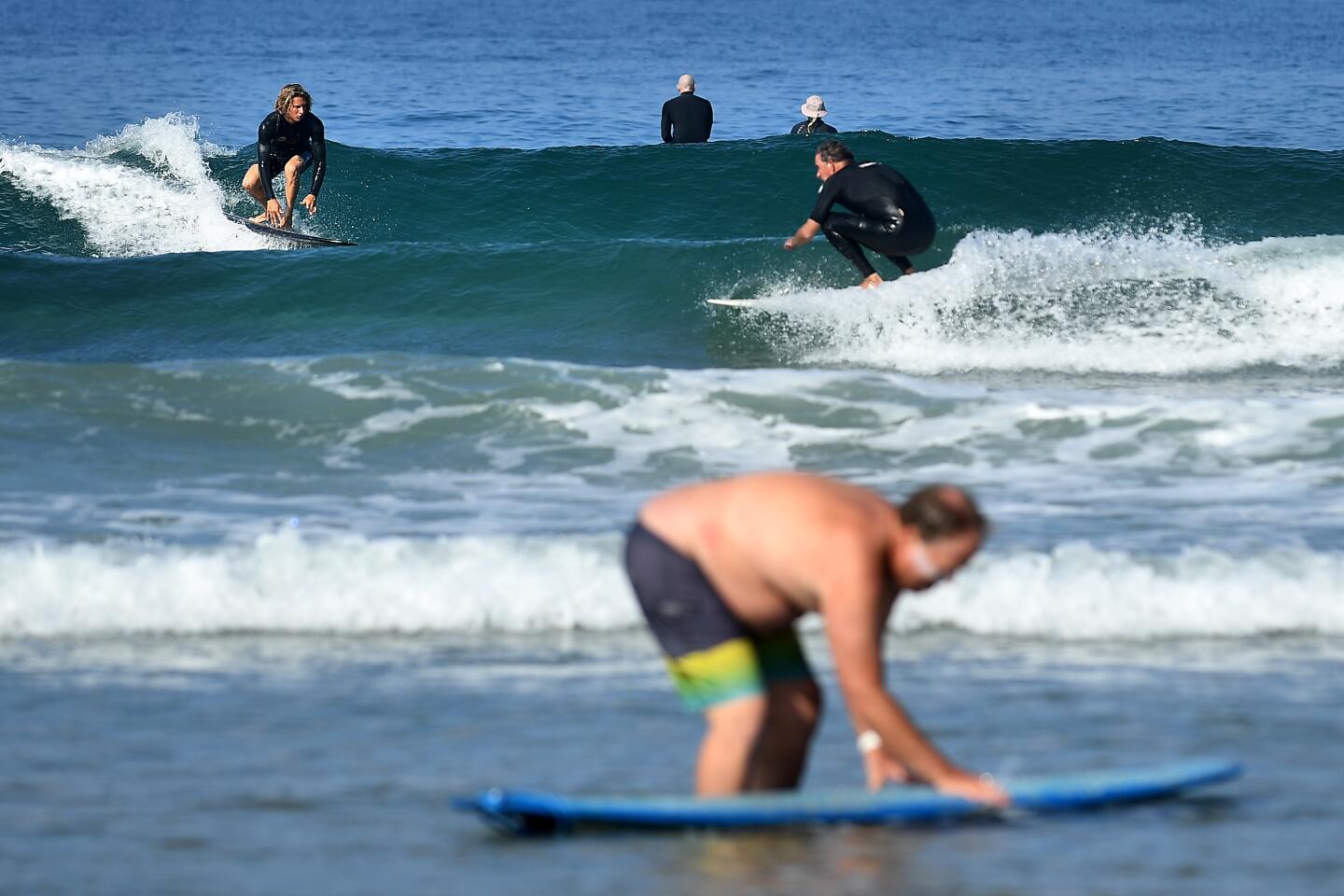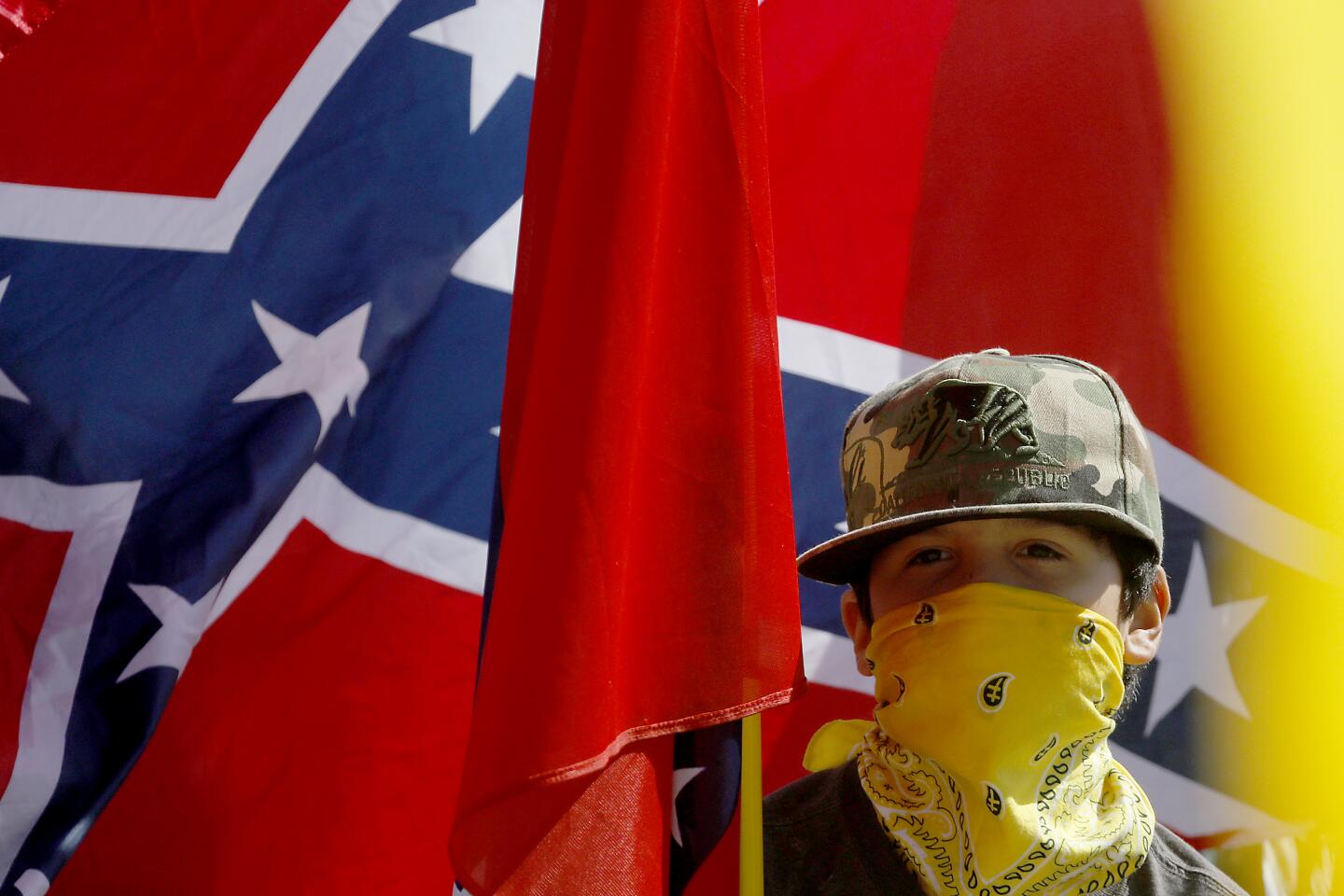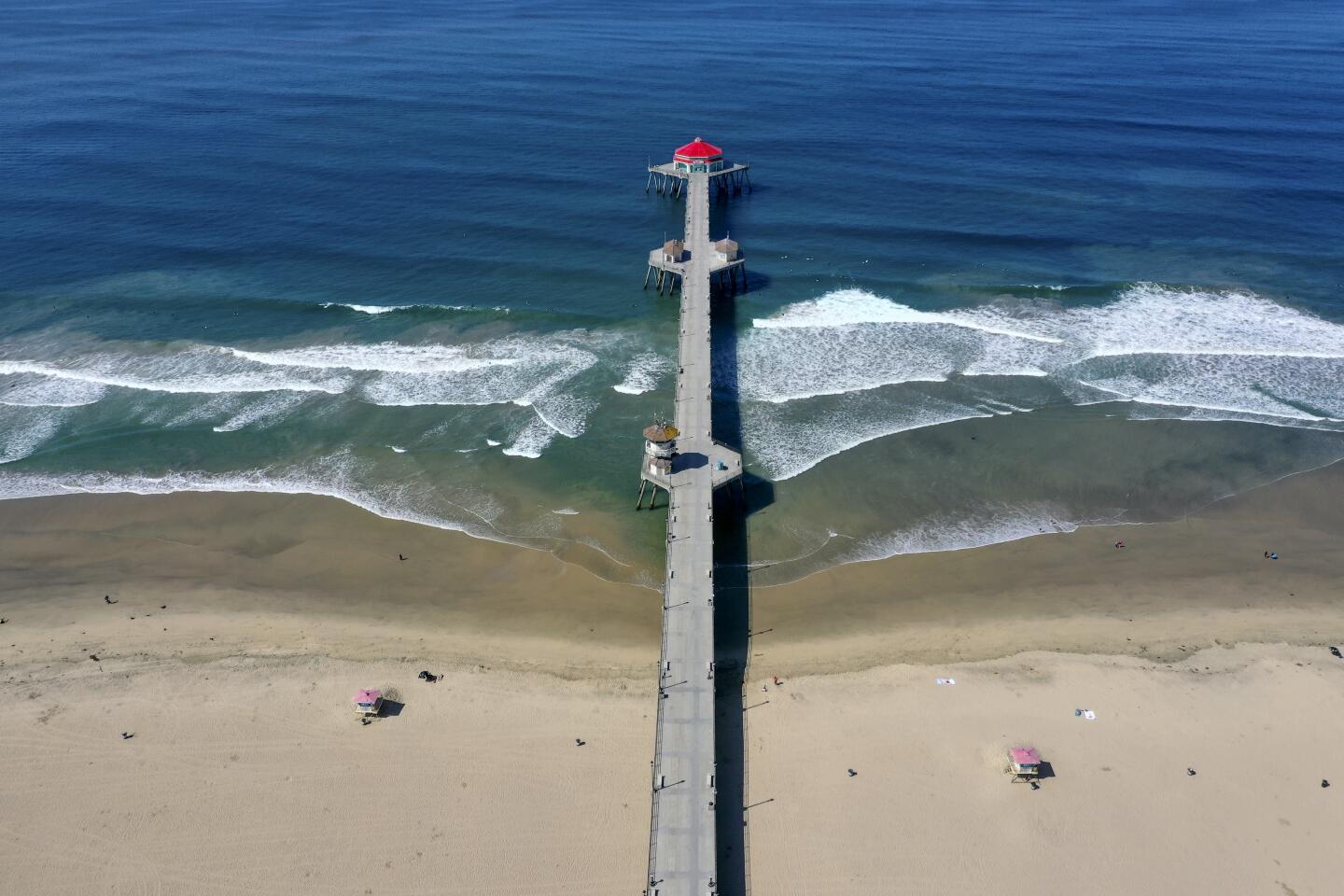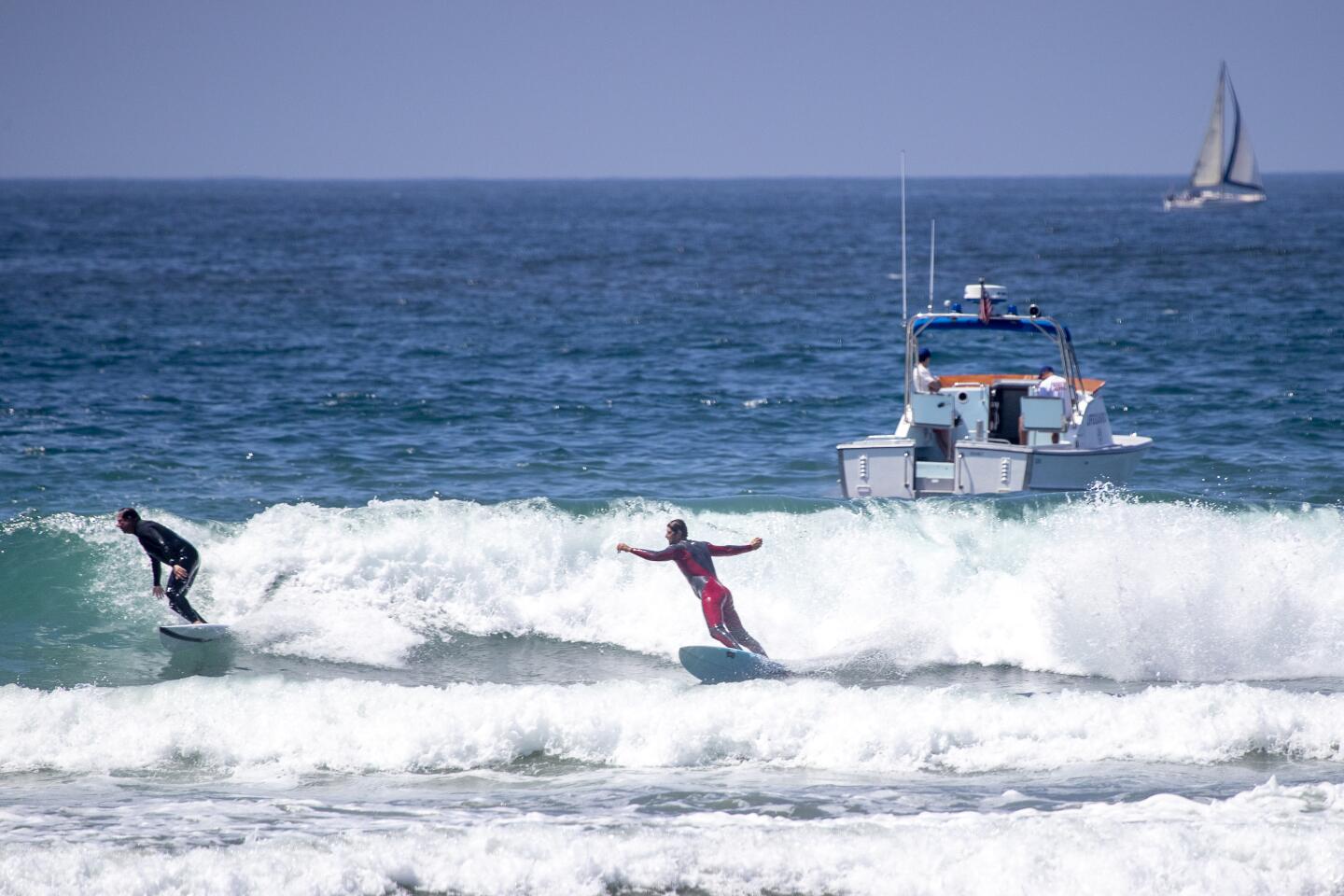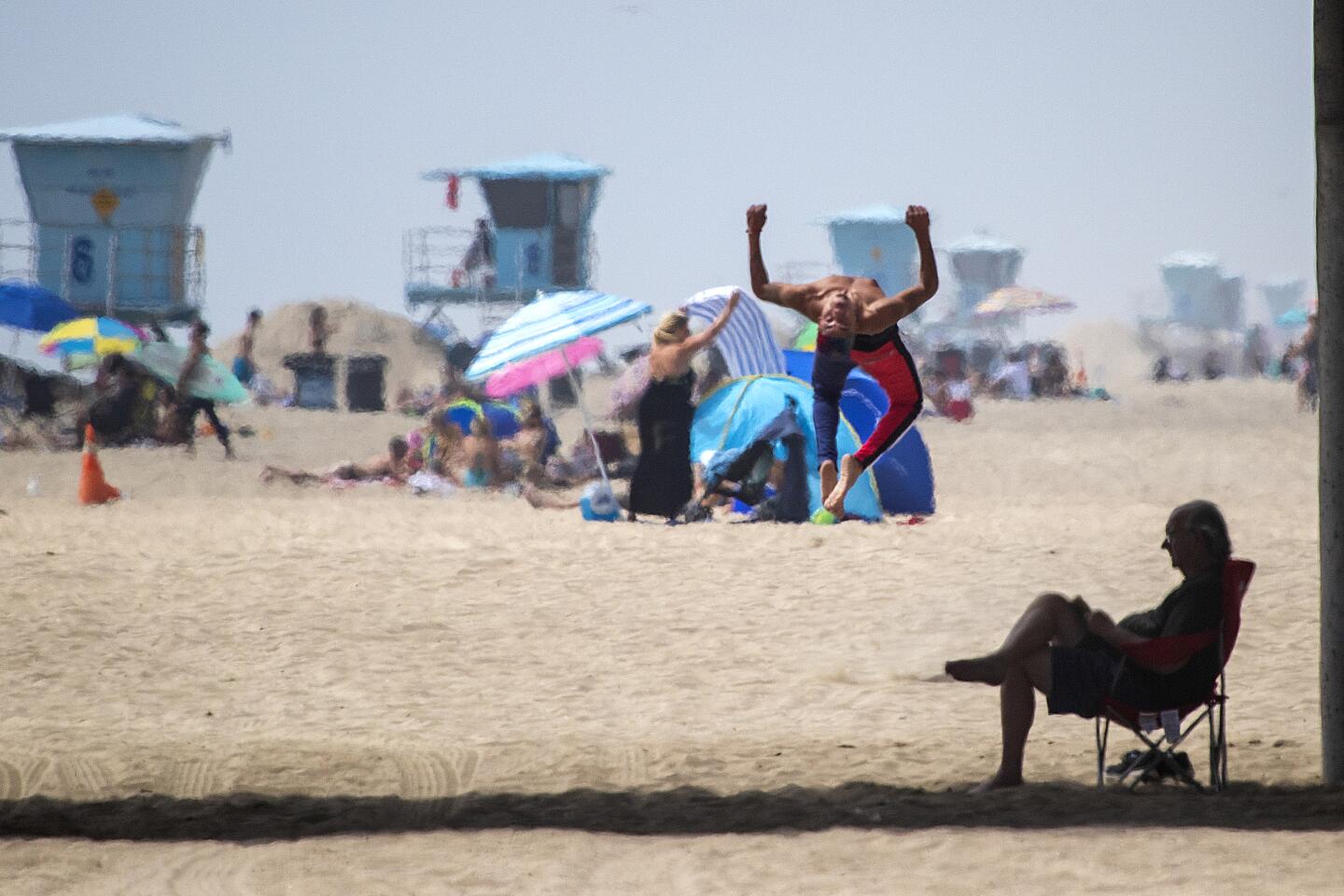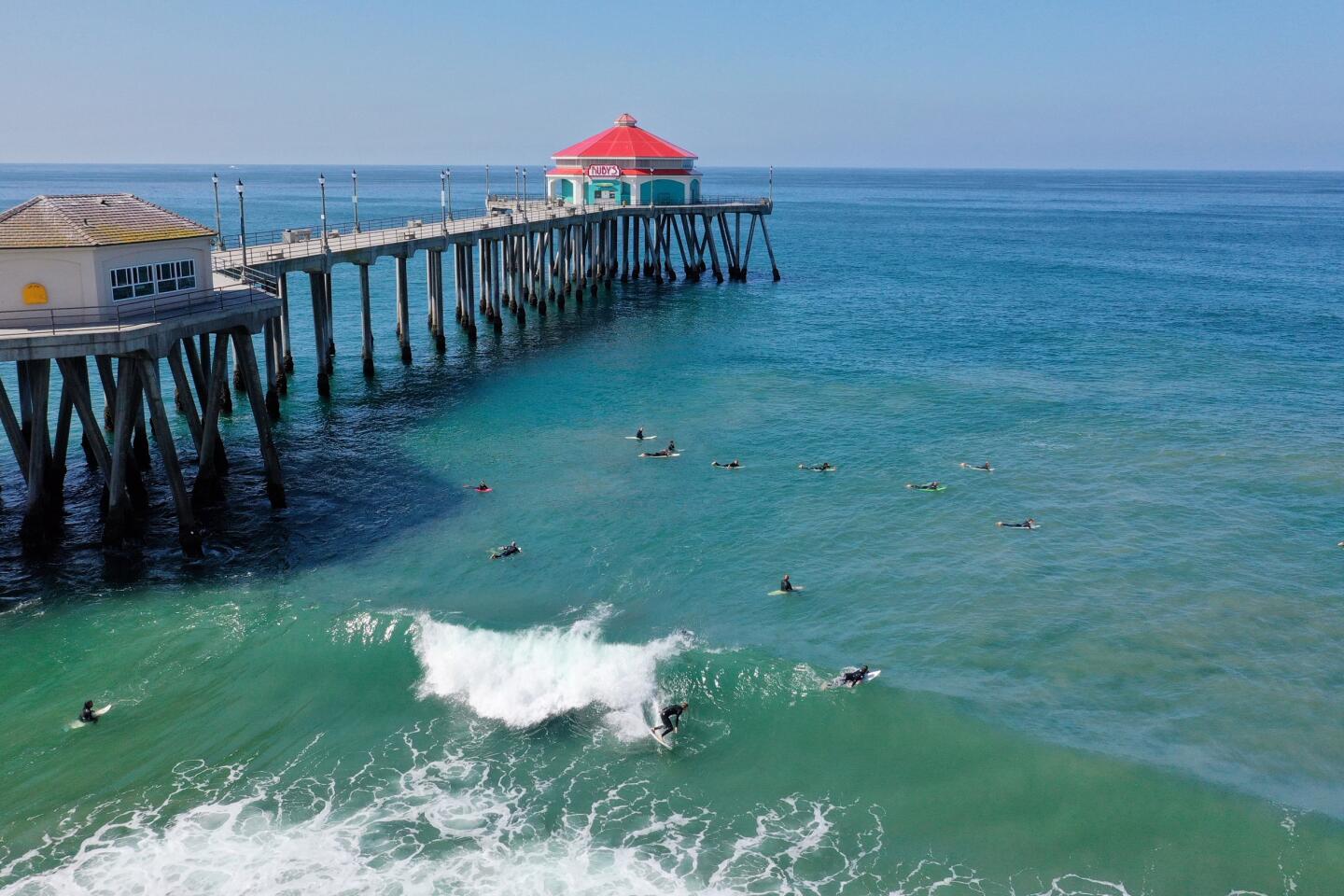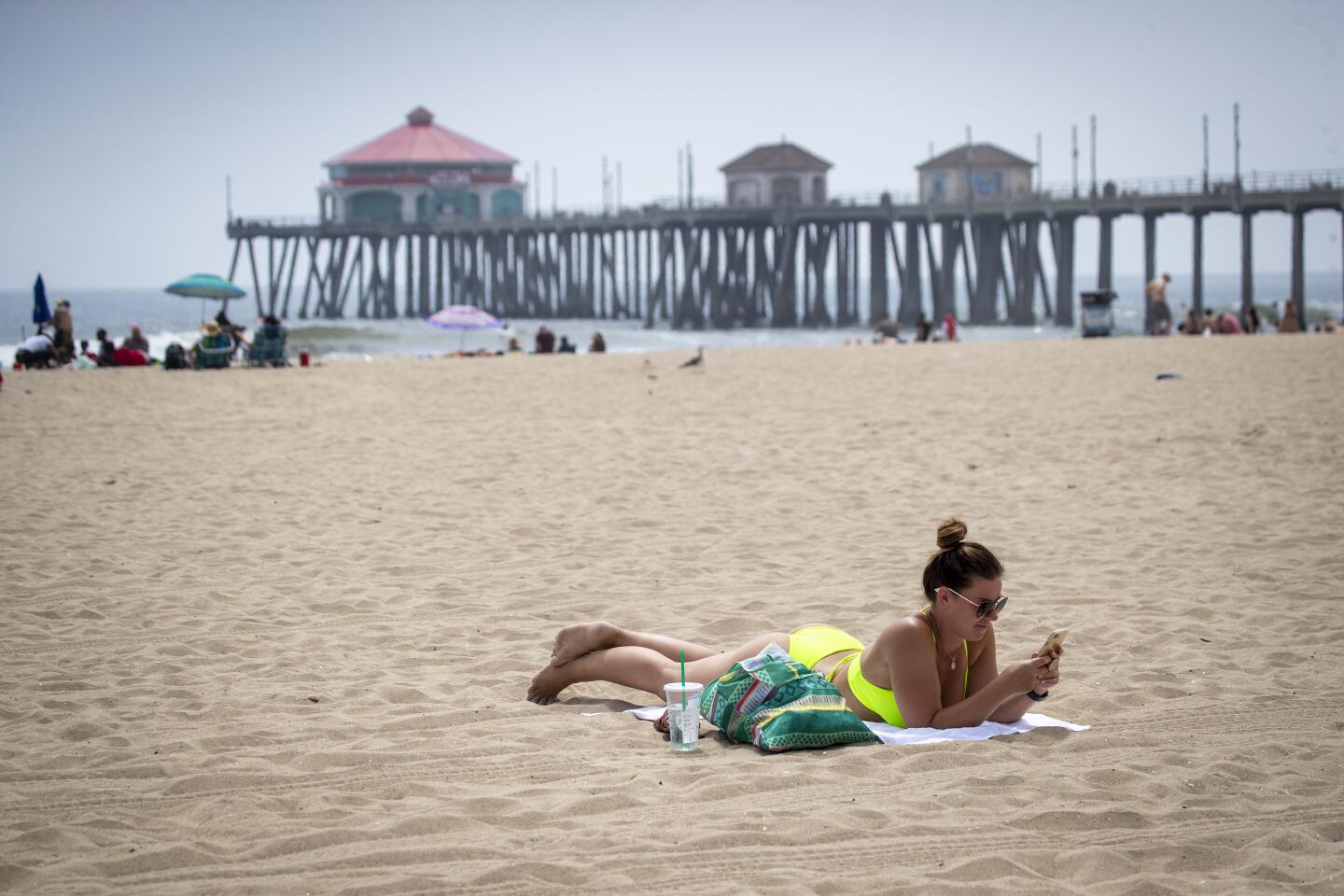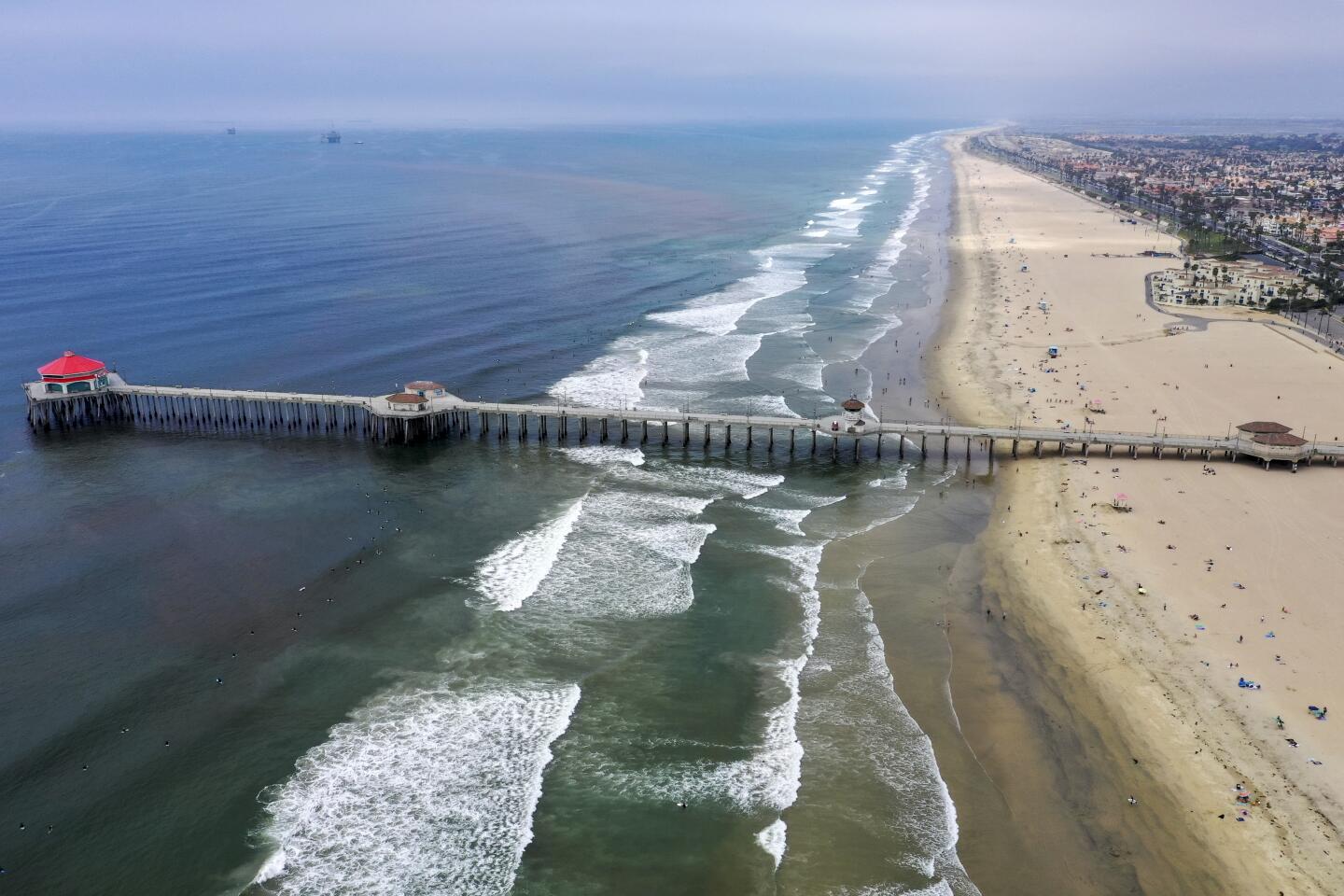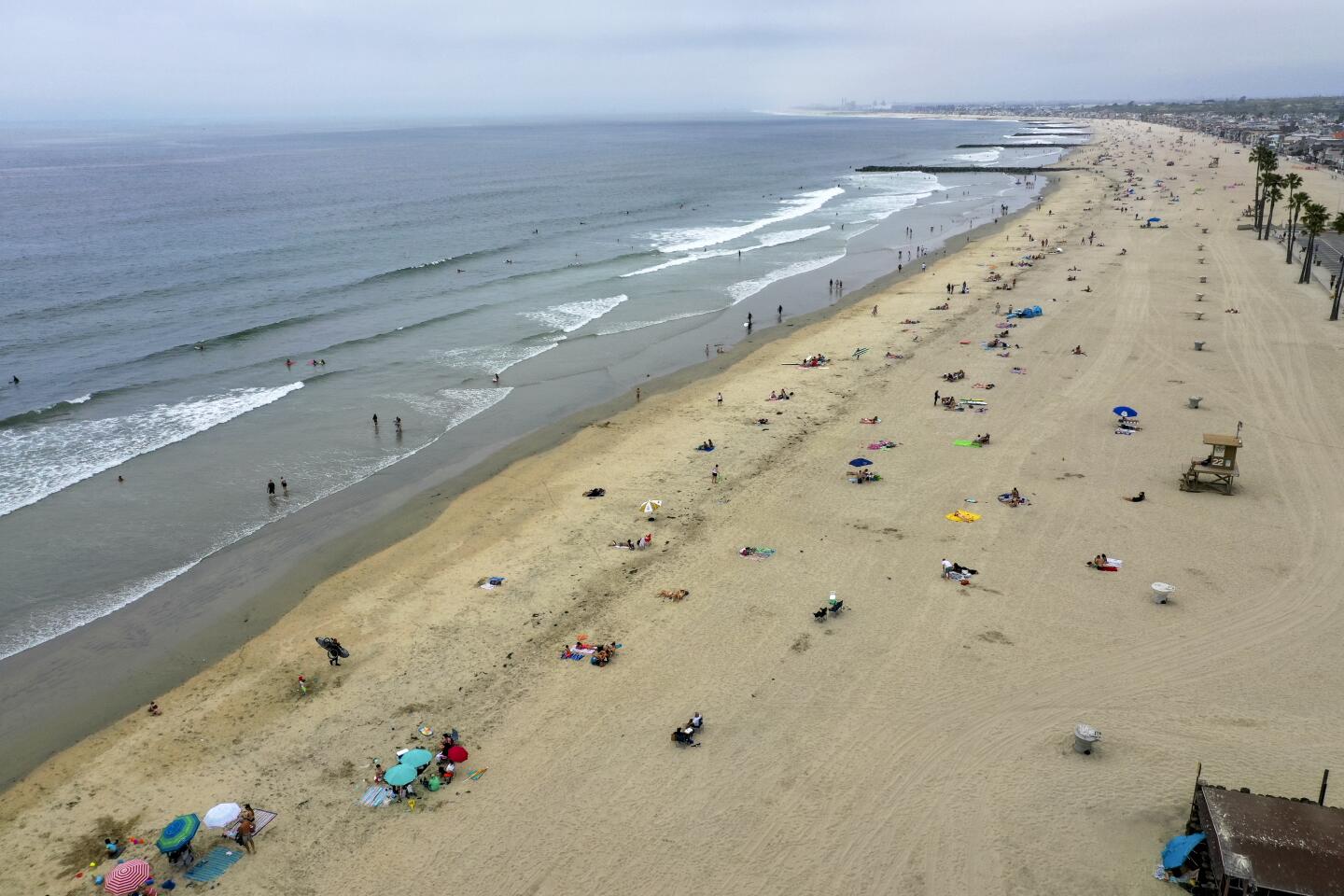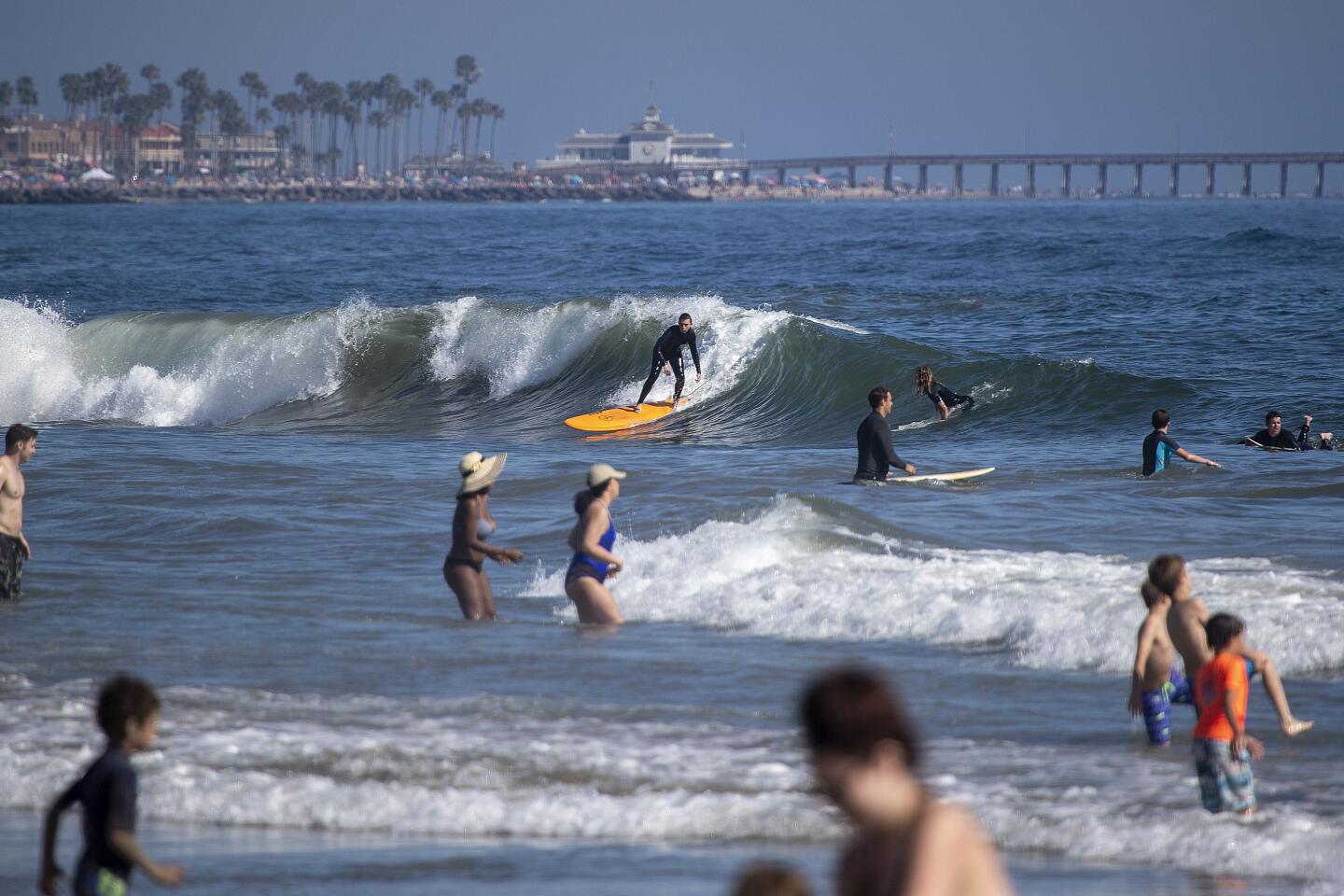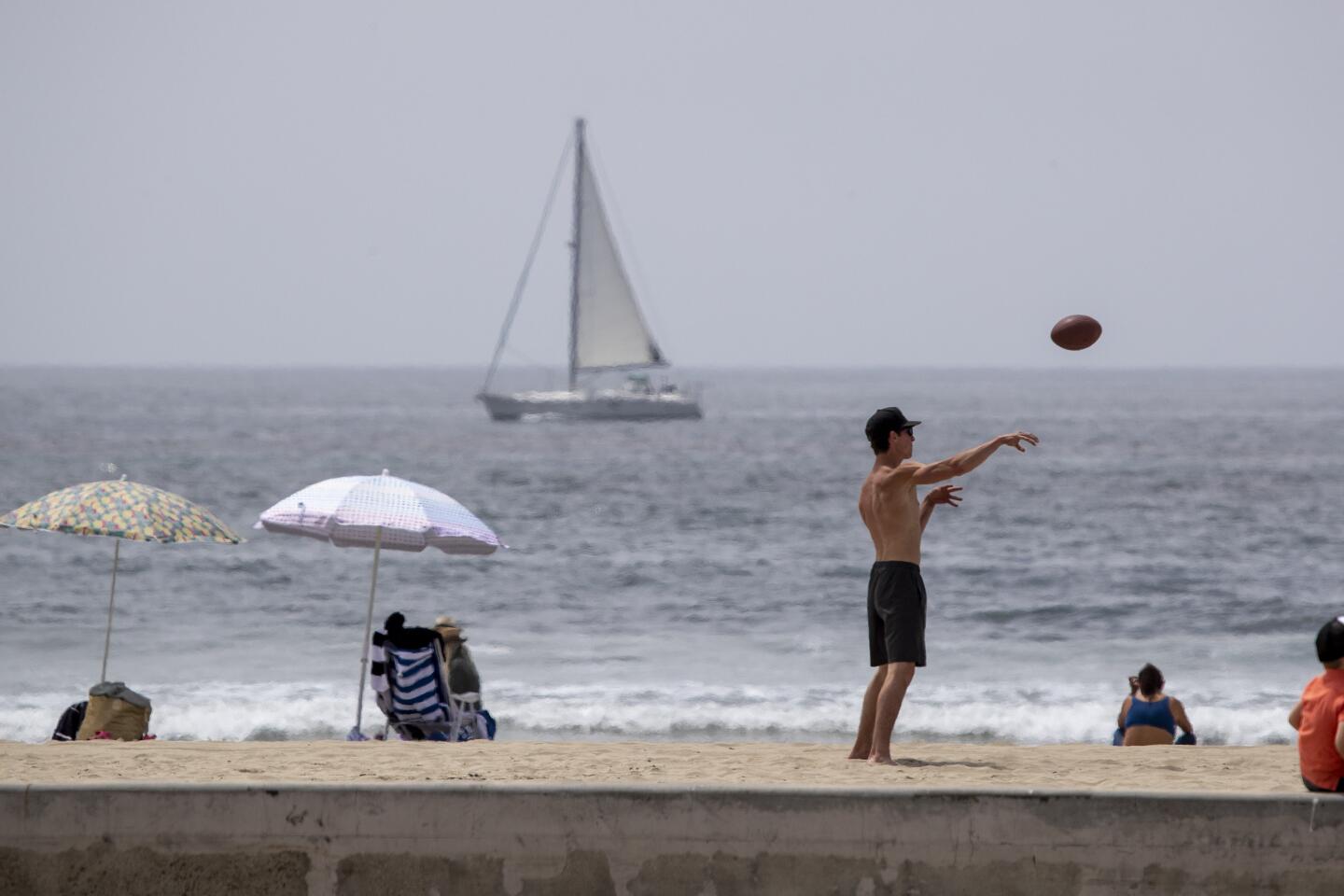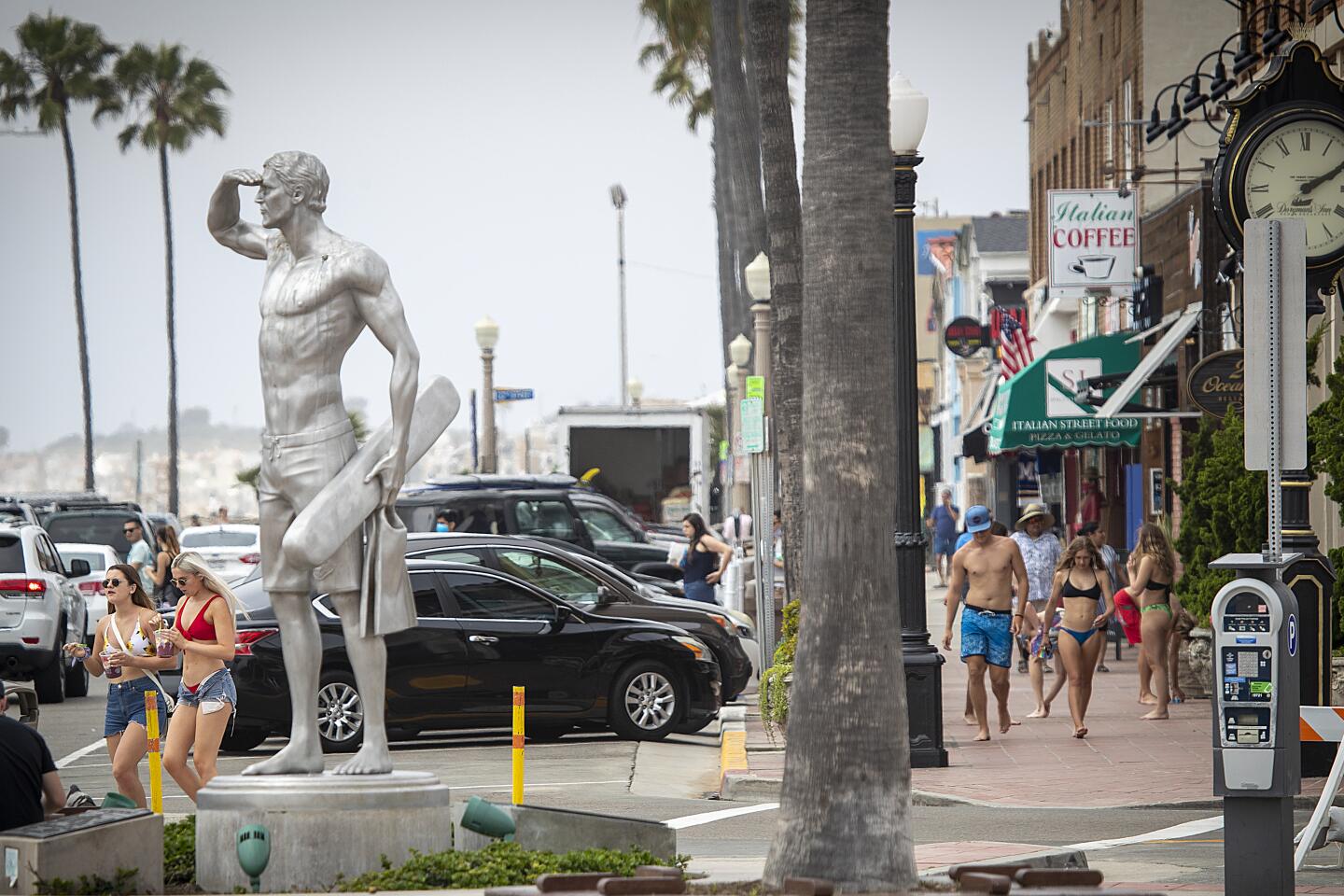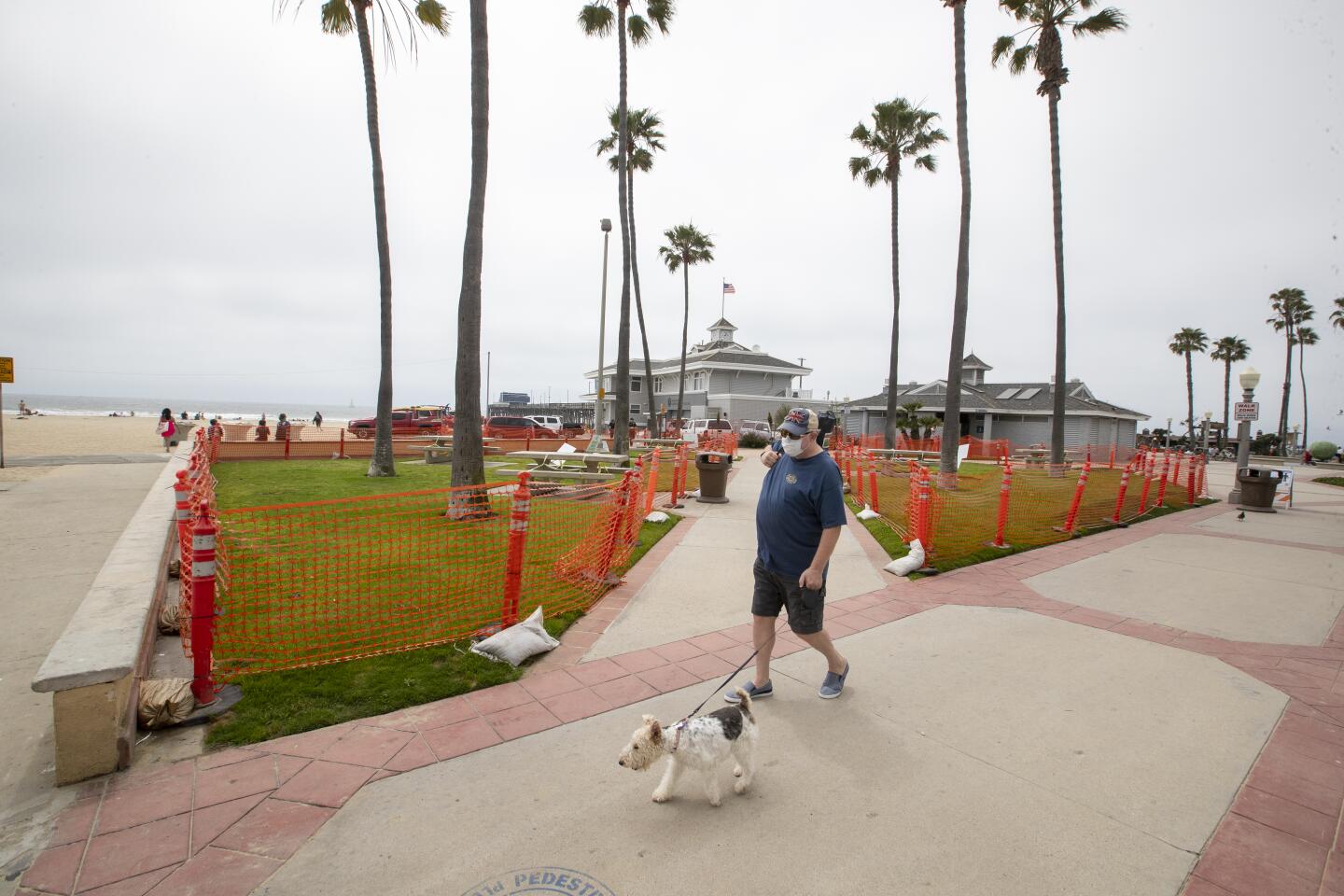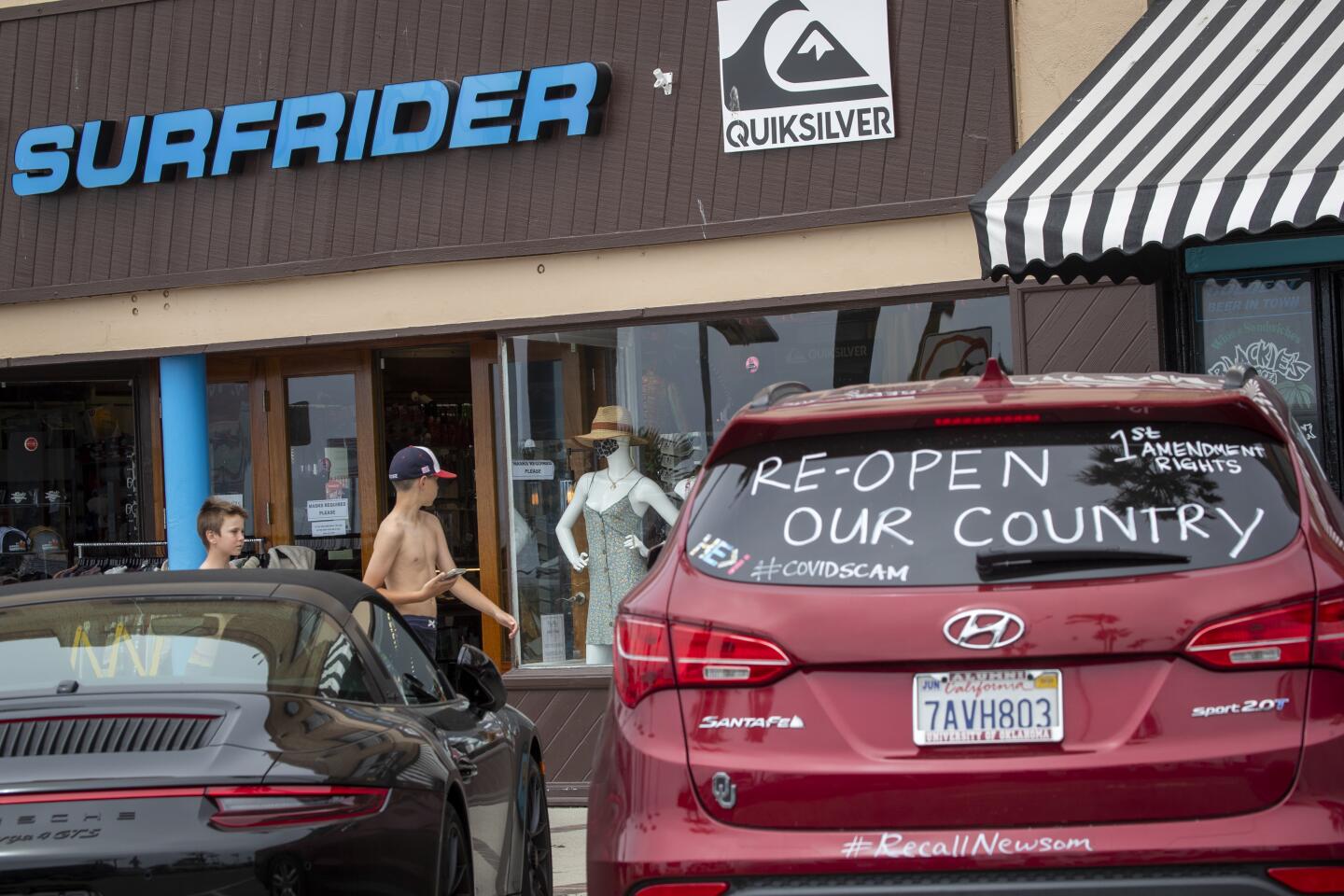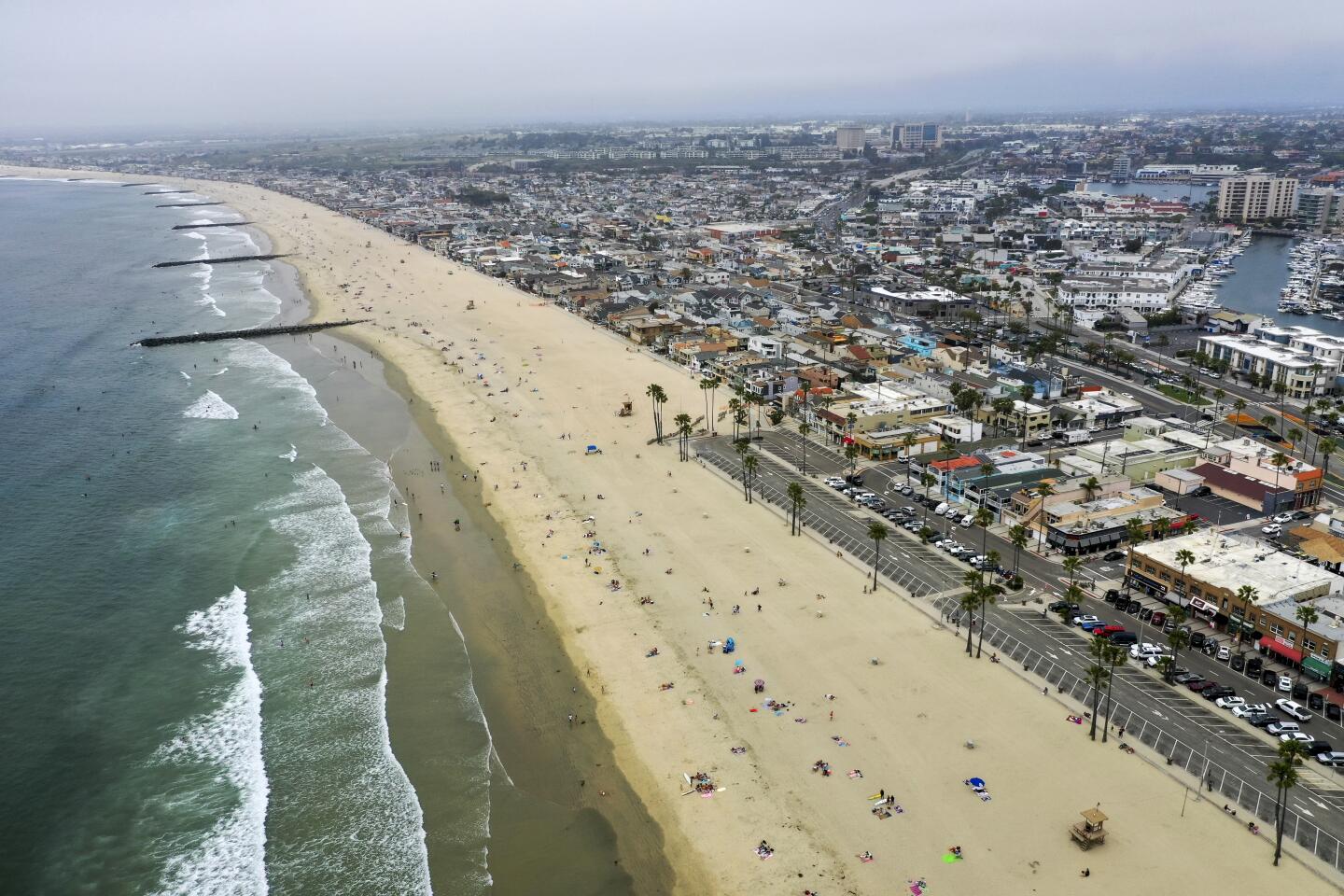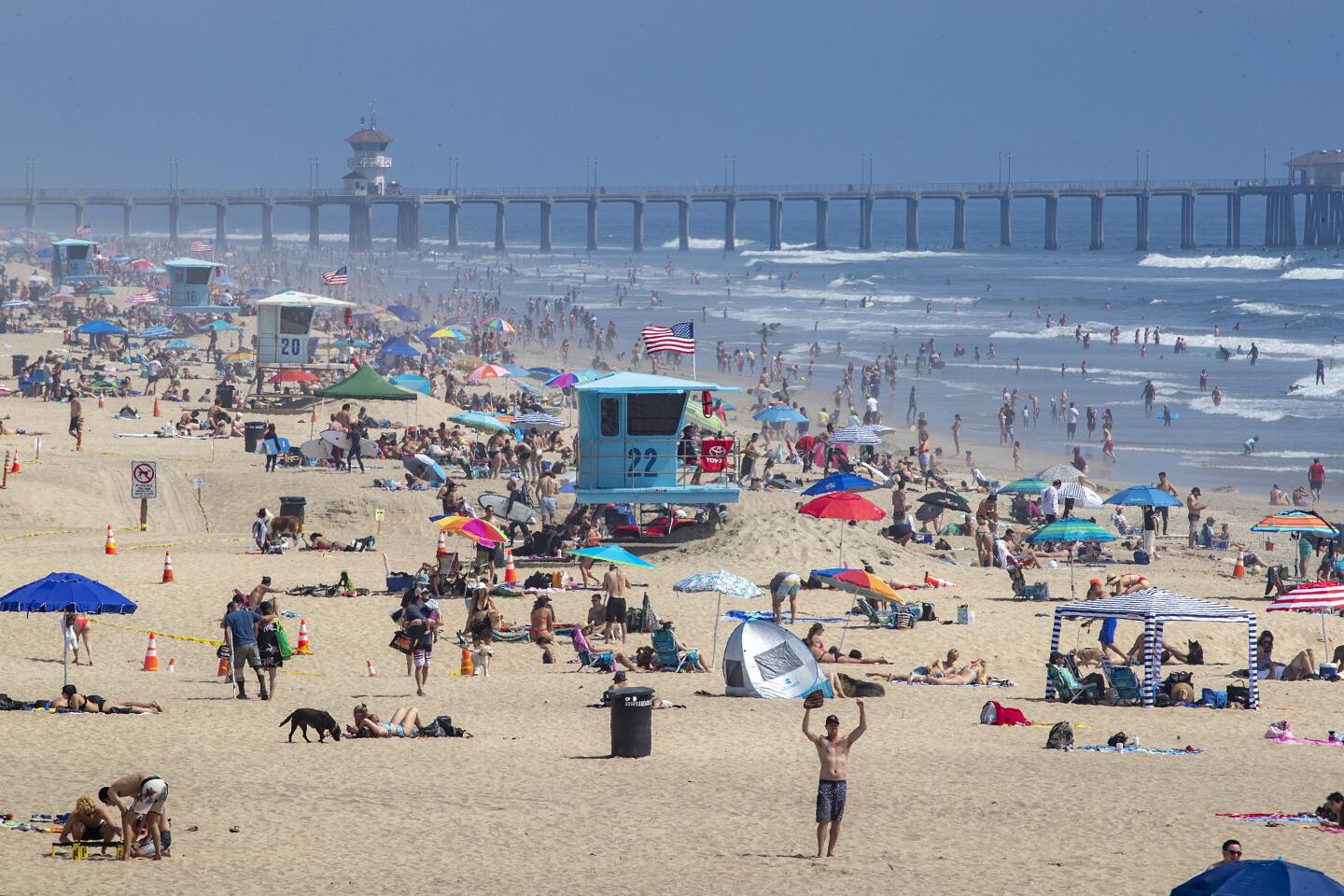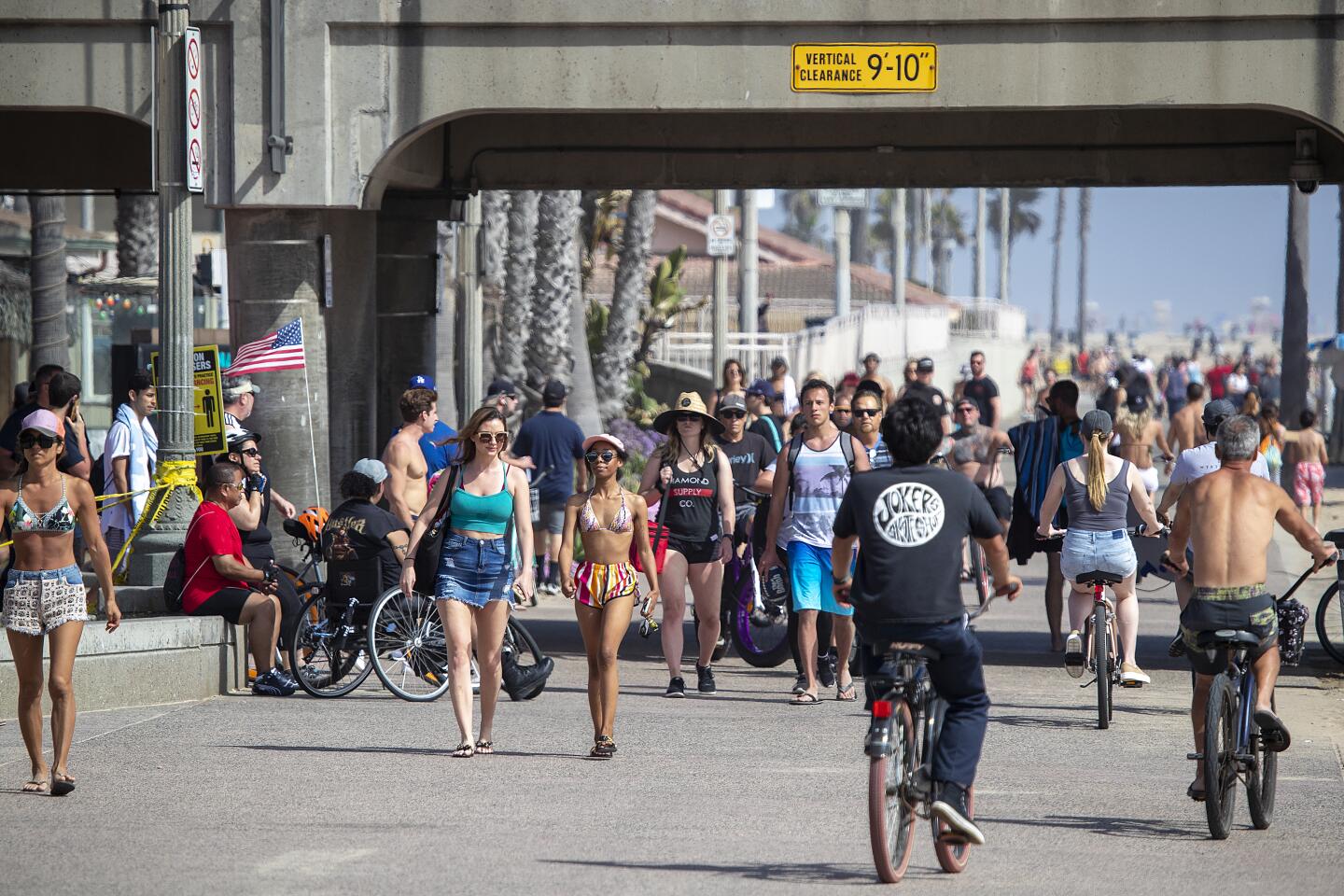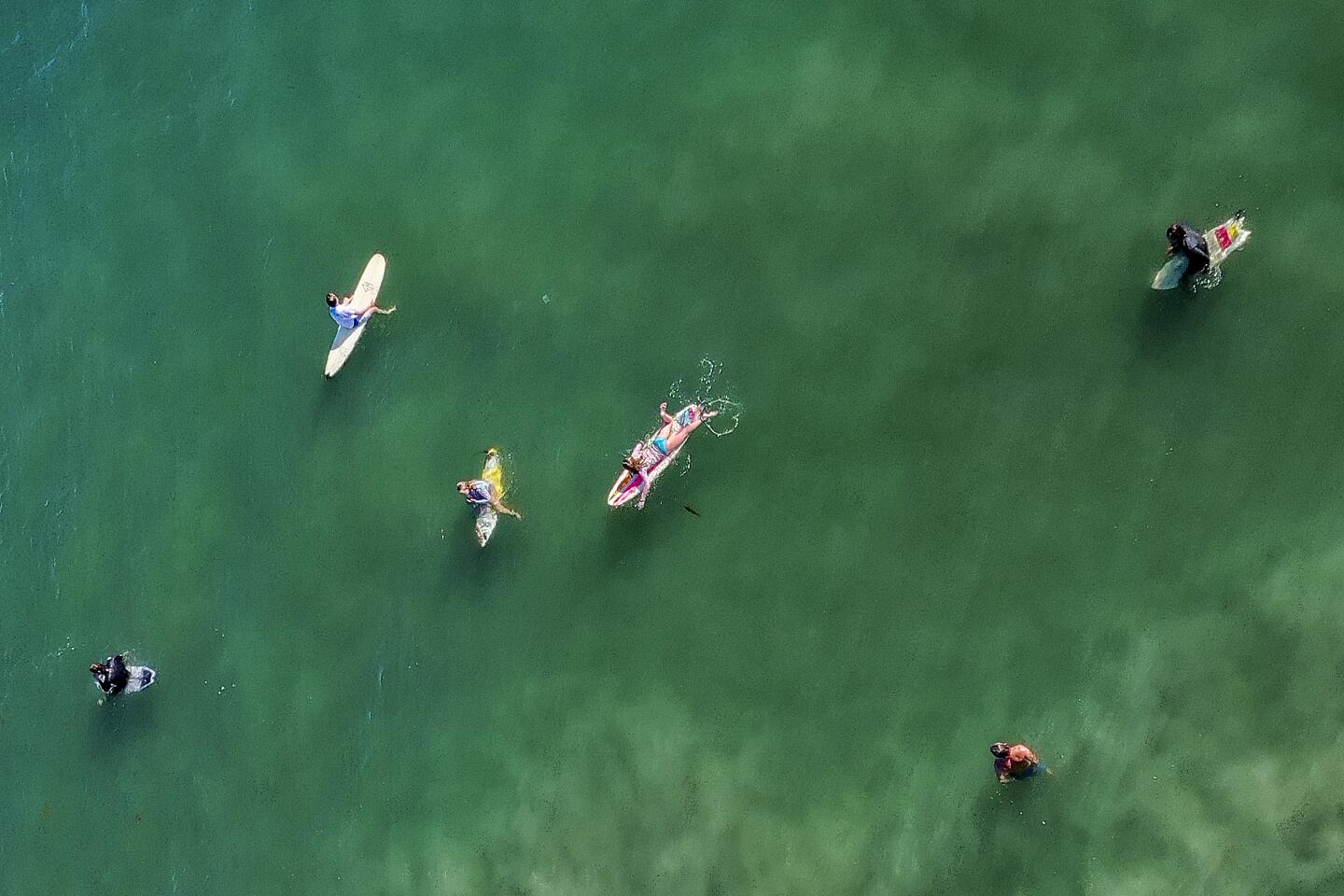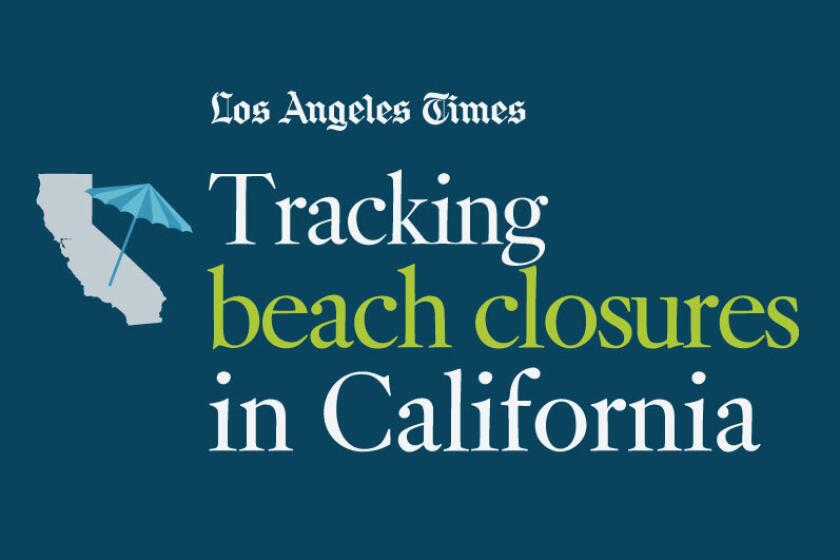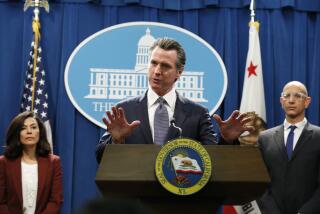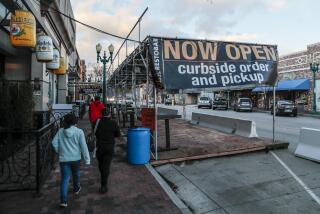California stay-at-home order faces revolts at beaches and in rural communities
Pressure to reopen parts of California continued to build over the weekend, with more rural counties vowing to ease stay-at-home restrictions and protesters marching against the closure of Orange County beaches, a move intended to slow the spread of the coronavirus.
Polls show most Californians support stay-at-home rules, which have been credited with helping California avoid the massive death toll of New York and other hot spots, and fear that lifting them too soon could cause more outbreaks.
But the social-distancing restrictions have devastated the economy, and some parts of California that have not been hit particularly hard by the coronavirus are pushing to get back in business.
Gov. Gavin Newsom said he understood the frustrations and suggested he would announce an easing of some rules as early as this week.
“I just want folks to know we’re getting very close to making really meaningful augmentations to that stay-at-home order,” Newsom said Friday. “I want to say many days, not weeks, as long as we continue to be prudent and thoughtful.”
The governor has described the next phase of his stay-at-home order as allowing some lower-risk businesses to reopen in communities across California, including retail locations, manufacturing sites and small businesses.
“The only thing that’s gonna hold us back is the spread of this virus,” Newsom said. “And the only thing that is sure to advance the spread of the virus is thousands of people congregating together. Practicing social distancing or physical distance, we can avoid that.”
A poll from the UC Berkeley Institute of Governmental Studies last week showed California voters give broad approval to Newsom amid the coronavirus crisis, and despite widely felt economic pain.
Voters want officials to take their time in ending restrictions on business and public gatherings. By 70% to 30%, the state’s voters say they’re more worried that shelter-in-place orders will end too soon, causing the illness to spread more, than they are that such orders will continue for too long and damage the economy.
Two weeks ago, 75% of people surveyed wanted the order to continue as long as it’s needed, according to a California Health Care Foundation/Ipsos survey. Only 11% wanted to stop the stay-at-home order, while 13% had no opinion. Among low-income residents, support was even stronger: 78% supported the stay-at-home order and only 3% opposed it.
Still, there have been protests across the state in recent days against the order, and some counties in rural California are taking matters into their own hands.
Yuba and Sutter counties in Northern California are set to allow many businesses to reopen Monday in defiance of Newsom’s statewide six-week-old stay-at-home order.
The two counties near the state’s capital would join a sparsely populated county in California’s northeastern corner, Modoc County, with fewer than 9,000 residents, that on Friday allowed all businesses, schools and churches to reopen as long as people inside can stay six feet apart.
The move by Yuba and Sutter counties — with a combined population of 171,000 people and just 50 coronavirus cases and three deaths — comes as other California counties on the Central Coast and San Joaquin Valley are demanding to reopen more businesses.
Newsom’s stay-at-home order, issued March 19, was the first to be issued by any governor in the nation, and experts credit that with helping California see a fraction of deaths of places like New York state, with more than 24,000 deaths. This compares with more than 2,100 fatalities in the Golden State, with 55% of those occurring in Los Angeles County.
A day after demonstrators congregated at the intersection of Main Street and Pacific Coast Highway in Huntington Beach to rally against stay-at-home orders, another organized protest took place Saturday in Laguna Beach.
At the start of the day, an orange netted barrier was put up around the town’s beach access points.
Those barriers did not hold, as protesters made their way onto the sand and continued the demonstration in the afternoon.
The Laguna Beach City Council recently voted to allow active use of its beaches from 6 to 10 a.m. on weekdays only. Laguna Beach Mayor Pro Tem Steve Dicterow said there had been overwhelming support for the phased opening plan, but he backed Newsom’s right to close the beach.
“I think it’s unfortunate because whether I agree or not with what the governor said, I think he has the legal right to do that, and I think the courts have determined that,” Dicterow said in reaction to the protest. “He created a path for us to go forward. He said to submit a plan, so we submitted a plan, and we’re waiting to see how the governor will react. I’m hopeful and optimistic that our plan will meet with his approval, and we’ll be able to open the beaches.”
At the north side of the Newport Beach pier Saturday, a group of about 70 was in the parking lot, wanting to get out on the sand. American flags were seen alongside red MAGA hats.
At noon, they started walking across the beach to the ocean. Newport Beach police officers advised them to turn back, and a helicopter from the Orange County Sheriff’s Department flew over, announcing the closure over a loudspeaker.
Bill Beukers was among them. He and his wife had driven down from Lancaster, and uncertain how the conversation would go, she filmed the exchange while the couple’s children bodysurfed.
Beukers, 48, said afterward that he was willing to get arrested and that the discussion had less to do with the beach than the constitutionality of the closure.
“Where do we go from here?” he recalled asking the officers. “What side of history do you want to be on? Someone has to stand their ground. We’re on a slippery slope, and we might end up where we might not want to be.”
He cited the 2nd Amendment and civil rights activist Rosa Parks, and in the end, the parties shook hands and the police departed.
In an interview with Fox News on Sunday, White House coronavirus task force coordinator, Dr. Deborah Birx, said the sight of anti-shutdown protesters crowded together in public, often unmasked, is “devastatingly worrisome.”
“We need to protect each other at the same time as we’re voicing our discontent,” she said.
Asked whether it was safe for people to flock to beaches in California, Birx said that depended on proximity.
“If it’s done with social distancing, yes,” she said. “If it’s not done with social distancing, no.”
More to Read
Sign up for Essential California
The most important California stories and recommendations in your inbox every morning.
You may occasionally receive promotional content from the Los Angeles Times.
